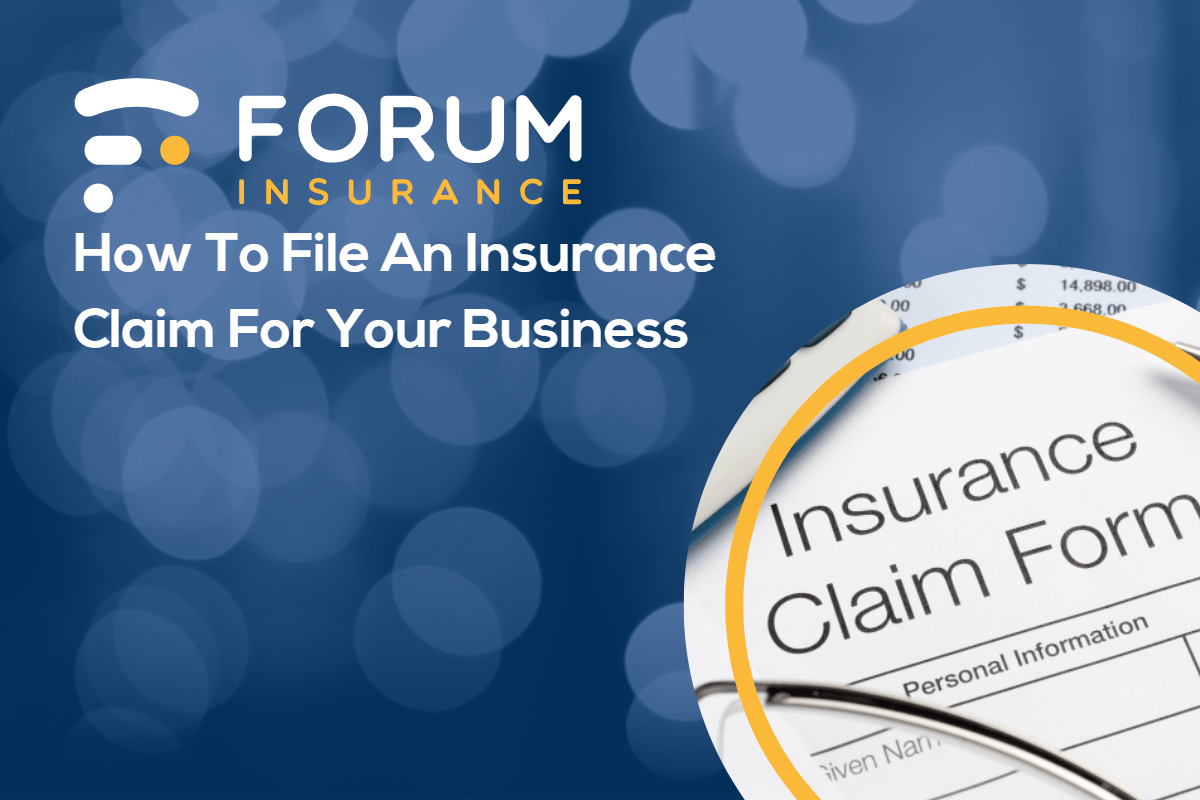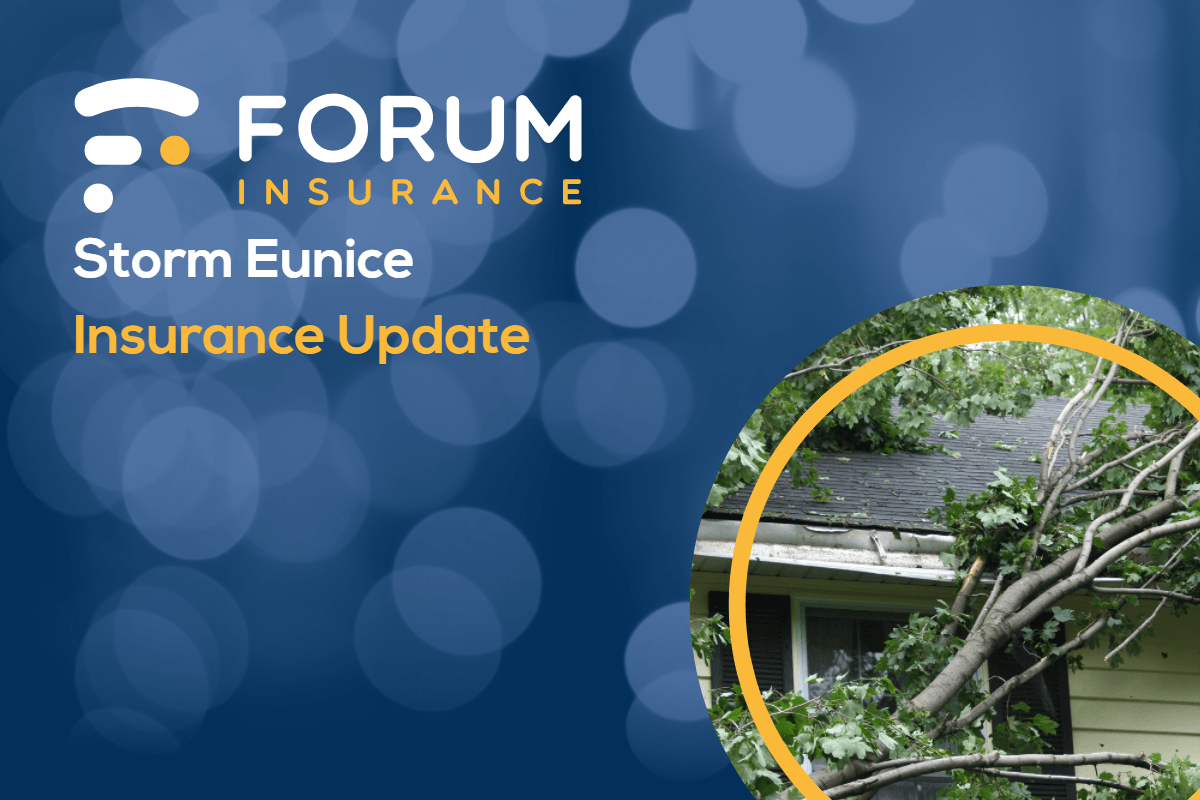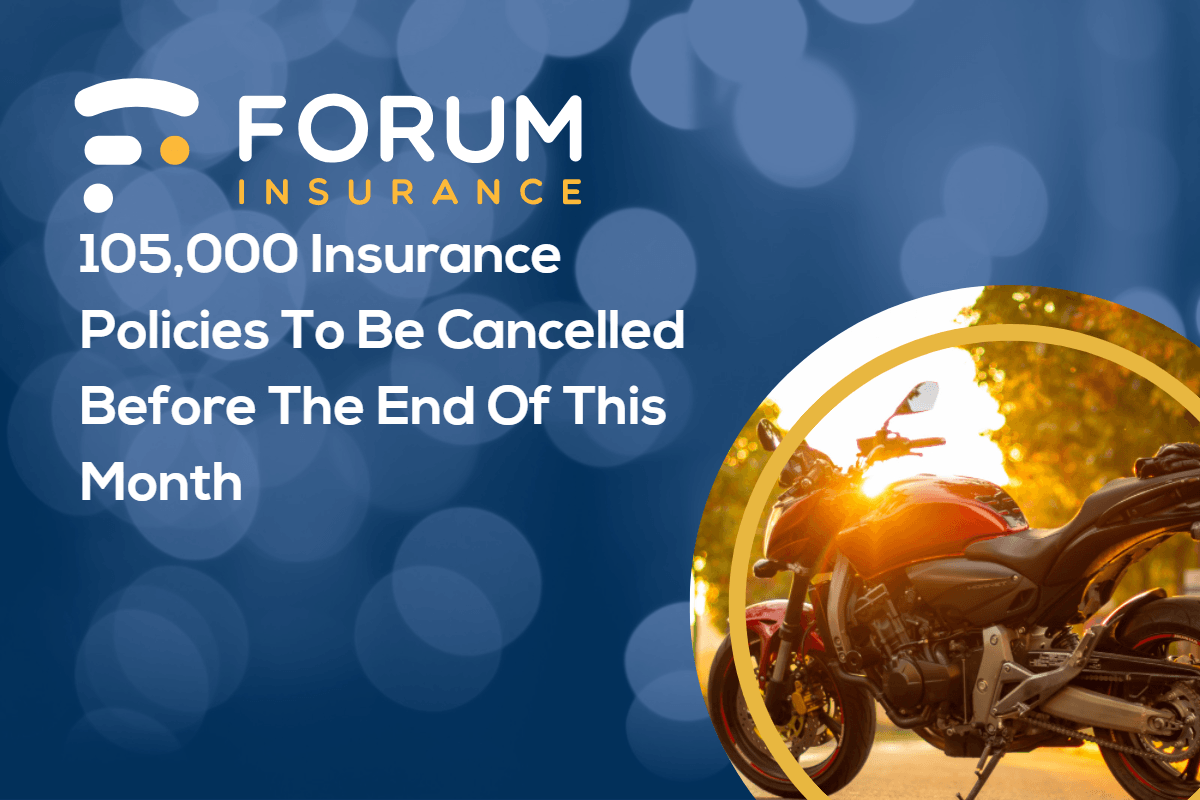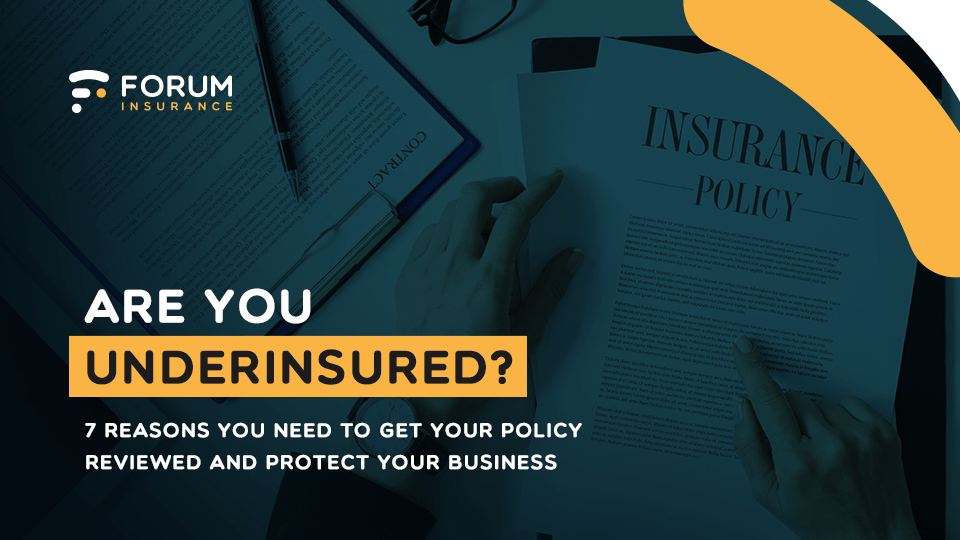Blog & News

By Niraj Mamtora
•
08 Feb, 2023
With Motor Premiums up by 8% in Q4 of 2022 (ABI, Feb 2023) we’ve got the information you need to reduce your insurance premiums. The worst thing you can do is to let your car insurance policy renew automatically, shopping around is one of the best ways to get a cheaper deal on your car insurance. We always recommend taking out a fully comprehensive car insurance policy to protect yourself, your car and any third parties involved. Here are some tips to drive the cost down even further: Search For Your Quote Early The closer you get to the day you want to begin your insurance policy, the more expensive the insurance policy will be. The cheapest time to search for your insurance policy is 25 days before your renewal, this is the cheapest time to ‘lock in’ your insurance quotation price. It’s best to diary this in your personal calendar 30 days before your renewal to give you enough time. Accurately Estimate The Number Of Miles You Drive Each Year We’ve found most people don’t accurately input the number of miles they’re driving each year and often over estimate them. If you’ve owned your car for more than 1 MOT cycle you can use this government tool to check your recorded mileage at each MOT and get an estimate of how much you drive annually . If you’re a low mileage driver, consider pay-as-you-go insurance. Pay For Your Insurance Annually Paying monthly for your insurance almost always works out more expensive as you’re taking a loan, with interest added. This makes a lump sum payment always cheaper. If you can’t afford to pay for the insurance in one lump sum, a good idea is to hunt down a 0% interest credit card . Make sure you keep to the credit cards terms, that’s usually making the minimum monthly repayment and paying off the balance before the interest free period ends. Increase Your Voluntary Excess Excess is the payment you make towards an insurance claim when repairing or replacing your vehicle. Raising your excess will reduce the price of your insurance. Just be sure you can afford the excess and you. Build Your No Claims Discount/Bonus Building your No Claims Discount (sometimes called No Claims Bonus) will help you get a cheaper car insurance policy as insurers reward motorists who are claim-free with a discount. It’s worth getting a certificate from your insurer at the end of each term to keep a record of this yourself. Choose Your Add-On’s Carefully And Sometimes Separately Vehicle insurance often doesn’t come with a courtesy car, GAP insurance, breakdown or legal assist. See if you need these add-on’s for your circumstances and choose wisely. You can get the add-ons for your insurance policy separately which can work out cheaper at times. There are multiple insurers and brokers that offer them separately. Park Your Car With Care Insurers deem parking in a garage, a driveway or anywhere off the road at night time safer than parking on the street as there is less chance your vehicle will be stolen or vandalised. Avoid Modifications Modifying your vehicle can mean a big price increase for your car insurance as it can make it more attractive to thieves, the modified parts are also more expensive to replace than the original parts of your car. Choose Your Job Title Accurately The way you describe your job can affect your vehicle insurance premium. A ‘hairdresser’ and a ‘barber’ can be quoted different premiums. Be honest about your job or you can risk invalidating your insurance policy. Multi-Car Policy If you‘ve got more than one vehicle, considering adding them all onto one policy as many insurance providers will offer a discount Now that you’ve got all the tips to keep your insurance premium low you know what to do when shopping online for car insurance. One thing to keep in mind is to be honest or it invalidates your insurance policy; this includes selecting the correct main driver, the usage of the vehicle (commuting and/or business use)
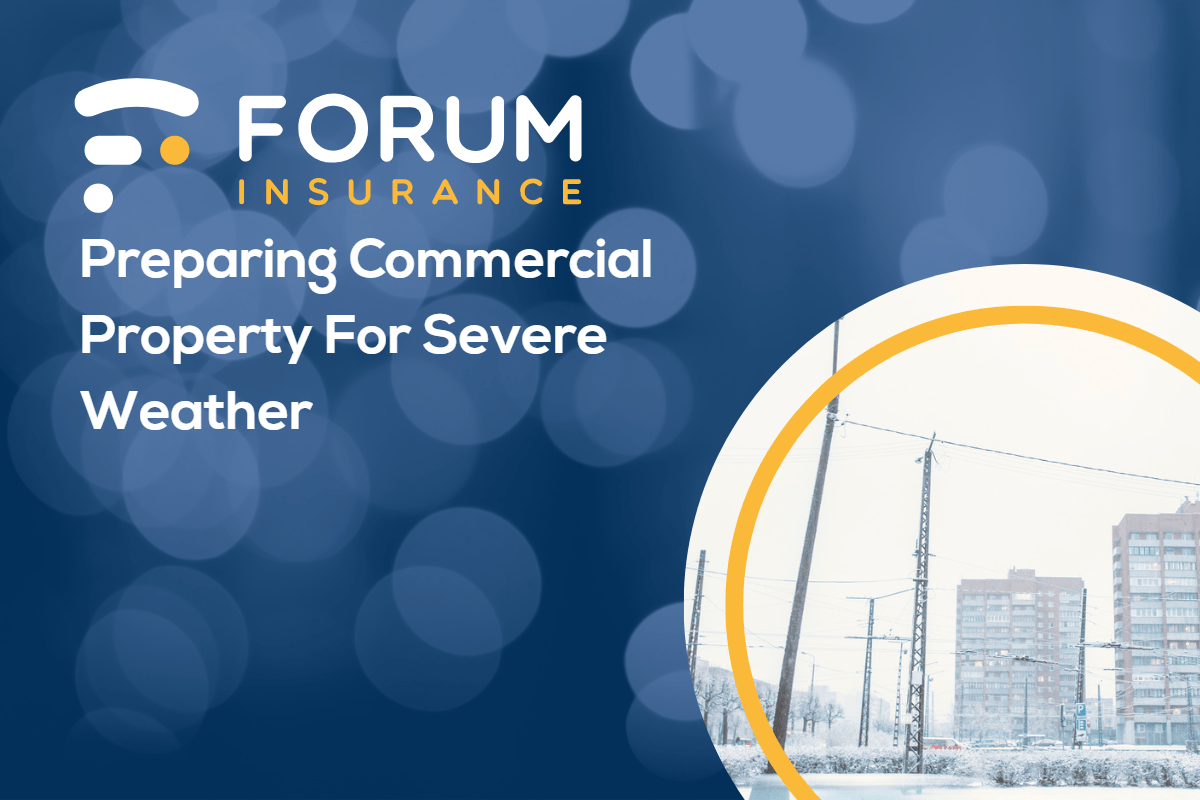
By Niraj Mamtora
•
24 Nov, 2022
Planning ahead for cold conditions There are a number of protective measures you can consider taking to help prepare your commercial property for the cold conditions, including: Have a professional plumber check your plumbing joints for leaks. Remember those which are hidden and keep an eye out for green discolouration on copper pipes – this could be a sign of a leak. Review your insulation to protect your pipes from freezing. Prevent your water supply stopcock from stiffening by testing it from time to time. Perform a comprehensive risk assessment to evaluate ice, flood and snow hazards, including large falling icicles, significant slippages of snow from sloping roofs or roof collapse from the weight of the snow. Develop your Business Continuity Plan (BCP) (Disaster Recovery Plan) to cater for winter-specific conditions. Check manufacturing processes and materials to see if they’re affected by lower temperatures. Check roofs, gutters and drains to make sure they’re in good working order. Don’t forget to follow the duties and precautions under the Work at Height Regulations even if the person carrying out the work is not your employee. Review any fire risk assessment; if you need to provide any additional or different heating, remember to inform your insurance intermediary. For the external parts of your property, consider: Implement slip-related safety measures, such as gritting or diversion to less slippery walkways. Don’t forget that hard floors in entrance areas can become very slippery during wet or snowy weather. Assess the exterior lighting around your premises; with less hours of daylight, it may be harder for people visiting you to see icy and other slippery areas. Leaving your property vacant If you’re going to leave your property vacant for an extended period of time over the winter months, it’s important to consider the following: Don’t lower the heating too much. Leave it on low at around 15°C, to prevent existing water from freezing. Alternatively, you could drain the plumbing system entirely. If you’re considering doing this, you should seek professional advice. Make sure that pipes in unheated areas, such as lofts and, where accessible, under floor spaces are insulated with high quality lagging. Insulate water tanks in lofts and unheated spaces or open-sided buildings. Have someone keep an eye on your property, who’ll be able to contact you should they find a leak. Hire a professional to check if you have a condensing type central heating boiler, which has an external condensate discharge pipe, ask them to check that the pipe is the correct minimum diameter for the model of boiler involved and that the pipe is suitably lagged. Freezing water in an unlagged external pipe could cause your boiler to stop working. In areas where extremely low temperatures can occur, your heating engineer may recommend that the pipe is also electrically trace heated. Watch out for frozen pipes Tell-tale signs of a frozen pipe include no water coming from the tap, frost or ice on the outside of the pipe and if the pipe appears to be bulging. However, a frozen pipe doesn’t necessarily mean a disaster, if you act quickly enough. If you discover a water pipe which is frozen but has not burst, take the following steps to prevent it from bursting and protect your possessions: Turn off the stopcock. Remove any furniture or equipment in the area which may get damaged by any leaking or escaping water, where safe and practical to do so. Open the tap closest to the area and begin gently warming the pipe with a hairdryer or hot water bottle, starting from the end closest to the tap and working away from the faucet. Don’t forget any outdoor taps – it may be worth insulating these to prevent water from freezing inside the cavity wall and causing an escape of water. Although pipes are inevitably damaged when they freeze, it’s only possible to see bursts when the pipe begins to thaw. If it is apparent that a pipe in your property has burst, you should: Turn off the stopcock and drain the system by opening taps in baths and sinks. Switch off your heating and, if in doubt, your electricity at the mains. Contact your plumber immediately. If possible, once the leak has been fixed, make sure you air the affected parts of the property by leaving windows and doors open. This content is by no means exhaustive and is for guidance purposes only. It’s not intended to amount to advice on which reliance should be placed. For requirements specific to your business, please seek professional advice.

By Niraj Mamtora
•
17 Nov, 2022
Driving in the dark Driving is significantly different in the dark and, without the correct safety precautions, potentially hazardous. At night, vision is reduced, making it much harder to see signs and other road users, such as pedestrians and cyclists. There are several things you can do to ensure your visibility isn’t compromised, including: Checking your lights to make sure all lights in and outside your vehicle are fully functioning. Driving slower than usual, as poor visibility means you may not see another road user or a hazard until the last few seconds. Driving at a slower speed not only means you have more time to see what’s in front of you but also more time to react. Taking regular breaks in night conditions, as the risk of falling asleep at the wheel is also greater. If driving at night is unavoidable, make sure you take regular, planned breaks and if you feel tired, stop and find somewhere safe to rest. Prepare ahead There’s no better time for a service than in the approach to winter. If a service isn’t possible, you can carry out your own tests. This should include: Routinely checking the concentration of antifreeze in the coolant system and bringing it back to the correct winter level. Making sure the windscreen and wiper blades are in working order and that the screen wash is topped up. Checking all lights are working and replacing any faulty bulbs immediately. Checking the car battery and replacing it at the first sign of trouble. Checking that the brakes are working well. Checking the tyres for any damage to the tyre walls such as cuts, cracks or bulges. These should be dealt with immediately as they could lead to slow punctures or blow-outs at high speeds. You should have a minimum tread depth of 3mm and anything less than 2mm remaining on a tyre should be replaced immediately. Never under-inflate your tyres – it’s a myth that a softer tyre means better grip. It may be worth installing winter/all season tyres. These are tyres that are specifically designed to give increased grip in winter conditions. In instances of particularly extreme winter weather, snow chains are also worth consideration. Please note that any tyre enhancements must be fitted to the manufacturer’s standard. Putting together an emergency kit It’s a good idea to put together a winter emergency kit, in case of breakdown in the winter months. You can have peace of mind knowing that you’re prepared for the worst by stocking your vehicles with the following items: Ice scraper and de-icer spray Powerful torch with spare batteries Reflective triangle First aid kit Warm clothing, wellington or other boots, blankets and/or a sleeping bag Insurance and broker documents, including any contact information for emergency claim hotlines Bottled water and non-perishable foods Jump leads Snow shovel Sat nav and maps Fully charged mobile phone(s), charger lead and auxiliary battery. Before you set off When setting off for a journey in severe conditions, make sure you: Decide if the journey can be postponed. If you are an employer then you must follow the legal duties relating to employee safety. You should consider the age and experience of your employees when it comes to making decisions about driving in potentially severe weather conditions, particularly if they will be alone. Check weather forecast and travel bulletins before leaving. Give yourself extra time for your journey and stick to main roads, where possible. Have plenty of fuel in the vehicle. In severe weather there may be less filling stations open for business. Always let someone know where you are going and when you expect to arrive. Use gentle manoeuvres, especially when braking. Be cautious with all road surfaces, even if they have been treated. Remember that stopping distances will be considerably longer in wet and icy conditions. Always try to pull away in second gear and select a higher gear such as third or fourth for travelling downhill. In the event of skidding, depress the clutch, steer into the skid and avoid the temptation to brake forcefully. Remember black ice can appear to just be a wet patch, so proceed with caution.

By Niraj Mamtora
•
11 Oct, 2022
Having a home based business is a brilliant move, it saves you money on a costly office/work space, it allows you to work odd hours with peace and quiet (hopefully) and saves stress and money on commuting. Many entrepreneurs, start-up businesses or side hustles operate from home, but how does this impact your home insurance? Running a business from home can also increase the level of risk to your property and your contents, which is why you need to make sure you have the right business at home insurance in place. What additional risks are there when running a business at home? It will largely depend on the type of business you run and the types of activities you are undertaking, but essentially running a business from home will increase the risk of loss occurring to your buildings and contents. Some of the elements you need to consider when running your business from home are below Stock If you run a business that requires you to hold stock at your home, this can put your property at increased risk of a break-in and theft. It will also increase the amount an insurer would have to pay out in the event of a fire or flood, and the resulting damage to any stock. Your insurer would need to know if you hold stock at the premises as this is not covered under standard contents insurance. Business Equipment Again, you may have expensive or additional equipment you use for your business such as desktop computers, laptops or specialist machinery. Your insurer will need to know about any computers, laptops, or specialist machinery you have at home in the event that they need replacing due to loss or damage. Usually, if you’re just performing a clerical role from your home with a laptop/PC that doesn’t impact your home insurance. Just make sure these items are covered by the employer’s business insurance – this will avoid hefty replacement/repair costs for a cracked screen, or if you spill a drink on your keyboard. Public Liability If you run the type of business that has customers or suppliers visiting, there is an increased risk of someone injuring themselves at your property. The more visitors, the greater this risk becomes. Accidents or injuries to members of the public while at your property could result in liability claims and would only be covered if you have the correct insurance in place. It is advisable for your business to have its own public liability cover in place, as home insurance providers will often ask you to confirm you have this covered. Your home insurance will likely have limitations, exclusions or conditions will often apply within the home insurance policy. What information will I have to provide to get a quote? The first step to purchasing home business home insurance is to get in touch with a specialist home insurance provider. What kind of business do you run and what it involves? For example, are you doing clerical work or production e.g. making curtains? What equipment do you use, such as a laptop, machinery or specialist equipment If you hold stock in your home and its value If you have business visitors, such as customers or suppliers, and the frequency of those visits If you have a separate business liability policy in place How much is home business home insurance? There is no clear answer for what you’ll be paying, but this is good news! As the risk factors vary between the nature of the work, business equipment, stock and if you have visitors your insurance cover will be tailored to your unique circumstances. This means you’ll be correctly covered and not overpaying for your insurance. What is not covered? As home business home insurance is not the same as business insurance, there are a few covers which will not be covered: Public Liability Insurance Public liability insurance protects your business against compensation claims and their legal costs if you cause injury (including death) to a third party or damage to their property. Public liability insurance covers you on your premises and working off-site. Professional Indemnity Insurance Professional Indemnity Insurance provides cover for legal costs and expenses incurred in your defence, as well as any damages or costs that may be awarded if you’re alleged to have provided inadequate advice, services or designs that cause your client to lose money. Employer’s Liability Insurance This cover is compulsory if you have any employees (including any volunteers or apprentices). This is to ensure you can meet the costs of compensation for your employees’ injuries or illnesses, whether caused on or off-site. What’s Next? By now you will know if your home insurance is impacted by you running a business from home. Your next point of call will be to find an experienced insurance broker to provide you with the right advice on what types and cover you should have. Luckily you can contact your Forum Insurance account executive, email at info@foruminsurance.com or call us on 0208 909 2899 . We will then search the insurance market so you don’t have to, this secures you the best cover, policy wording and insurance premium.
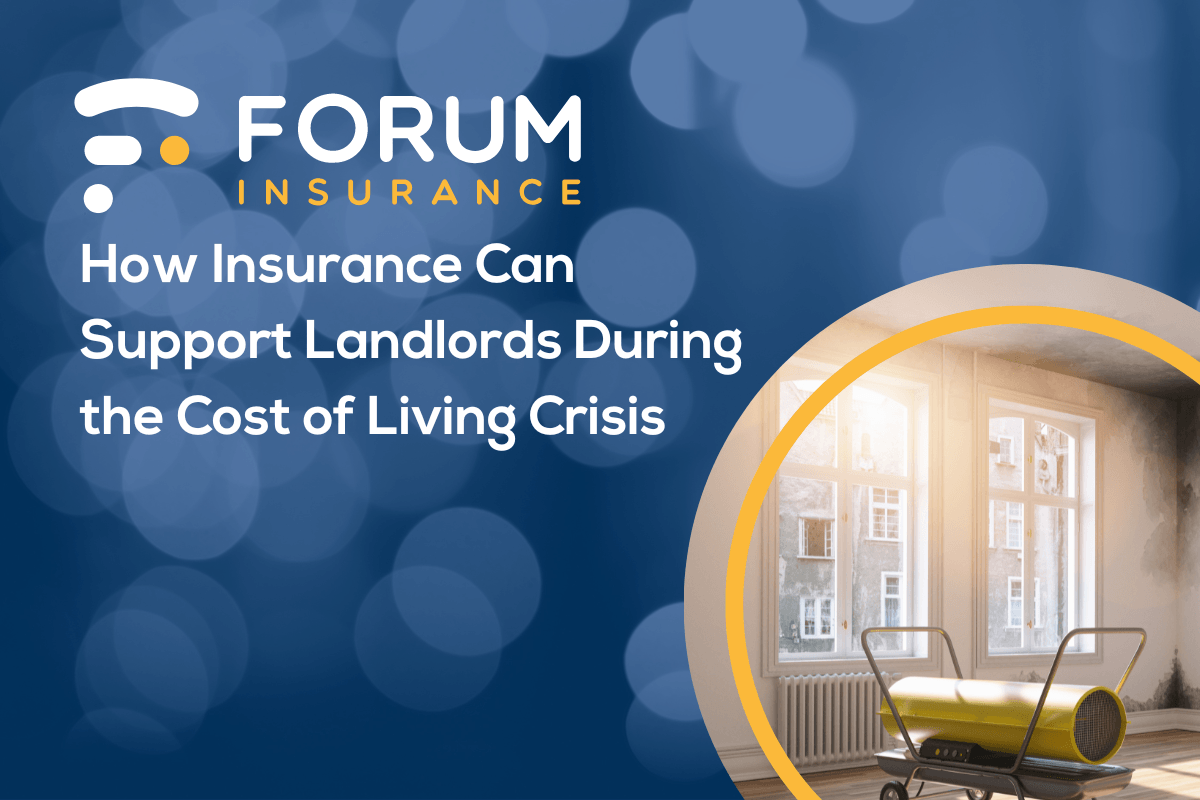
By Niraj Mamtora
•
10 Aug, 2022
With inflation going up at a faster rate than usual, everyone feels the effects of prices rising across the board. And with inflation currently at 8.2% ( ONS July 2022 ) and the Bank of England already predicting it could rise to 10 per cent, landlords and tenants alike are feeling the financial squeeze. As a landlord, with your own costs unavoidably increasing, it should be a priority to make sure that rental income keeps arriving in your account each month. But what if your tenants are struggling to make rent payments because their take-home pay simply isn’t stretching as far as it used to, thanks to spiralling utility bills, fuel and food costs? Loss of Rent Insurance There are two types of rent insurance you can secure: Loss of Rent Loss of rent due to an insured event, such as a flood at the property. With loss of rent, if the tenant has to move out, the insurer will cover both the cost of repairs and lost rent for the period of time the property is uninhabitable. Rent Guarantee Rent guarantee insurance gives you peace of mind that if your tenants default, you’ll continue to receive the full rent amount each month (up to a specified limit). This will protect you, whatever happens to your tenant’s finances. There are different types of cover and limits, we can advise what is best for you on this. We have a panel of insurers that offer rent guarantee protection as a separate policy. Although terms and cover will vary, most policies include: Rent paid in full each month if the tenant defaults (commonly for up to either 12 or 15 months of the rental contract, to a maximum total of £50,000) Cover for the cost of evicting the tenant and regaining possession of your property Cover for damage caused by tenants or their visitors Your landlord insurance policy can also help protect your profits by making sure you’re not left out of pocket if your tenants cause damage to your property – whether deliberate or accidental. Whether we like it or not, damage to a property happens through burglaries, burst pipes, malicious damage, storms, fire and flooding. While you may be able to make a deduction from the tenant’s deposit for small costs, if it costs much more than the amount held or there’s any issue with retaining funds, it’s good to know that your insurance policy has you covered. For those in doubt, help is at hand To find out how loss of rent insurance can help you, please contact your Forum Insurance account executive, email info@foruminsurance.com or call us on 0208 909 2899 .

By Niraj Mamtora
•
04 May, 2022
On the 17 th March 2022 we attended the the Eastside Rooms in Birmingham for the inaugural Hedron Network Spring Event. It was a celebration in many respects, of the first conference as Hedron Network, the first time many people had met face-to-face, and – of course – St Patrick’s Day! The day kicked off with David Hopwood, CEO of the Hedron Network, recognising the challenging time that the insurance industry has endured; hardening market, Brexit, consolidation, COVID-19, and Business Interruption claims to name but a few. It was also recognised and applauded that as partner brokers, our response was quicker and better than much bigger businesses with many more resources. David referenced the recent news of Brown & Brown’s acquisition of GRP, Hedron’s parent company, and the collective optimism within the Network for what the future holds under this new ownership. David also commented that to remain competitive, brokers need to evolve, embrace change, and to focus on their strengths, working with partners to provide support and agility. He went on to stress the importance of collaboration and everybody pulling in the same direction, and this was certainly evident throughout the day, where the collaboration between providers and brokers alike contributed to the success of the event. David called for insurers to “step up” to meet the core broker demands of better access to decision makers, improved service levels, and trading flexibility that were identified in the recent broker survey. Speed Dating This is a cornerstone of Network events with some more experienced “speed daters” than others taking part. A strict 14-minute window ensured conversations between us and insurers were to the point. It was amazing how much can get done in such little time! Meetings were held between insurers and the members of Forum Insurance , Barry, Amish, Bhavik, and Robert. I did not attend any of the meetings but as an observer, it was great to see the hustle and bustle of new connections being made, current relationships being developed, and some fantastic trading opportunities being discussed. All of these conversations were aimed at look after our clients by sitting down with our current insurers and adding new insurers to our panel. Expo With 48 insurers and providers exhibiting, it was a room full of the “who’s who” from the insurance sector, ready and armed with the usual high standard of branded goodies on the stands we’ve come to expect! Systems were demonstrated, appetites shared, benefits conveyed, frank conversations had, and some new relationships set up there and then. Insurers, service providers, brokers, and Hedron staff all participated with genuine enthusiasm to make it an incredibly productive day of networking for Forum Insurance. Afternoon After enjoying lunch courtesy of Allianz, the afternoon got underway with two punchy presentations focused on the impact of inflation. First up was Steve Good from Allianz who spoke about the drivers of inflation and the impact from an insurer perspective. Supply chain issues, emanating from a combination of COVID and Brexit were driving up both costs and reinstatement periods. In commercial property, claims inflation was being fuelled by steep rises in both material and labour costs. Weather-related losses have also seen an increase in frequency and volatility. Brokers were encouraged to review sums insured with clients and get RICS valuations. BI indemnity periods should also be reviewed to allow for current circumstances, you can read more here . Will Molland from Rebuild Cost Assessment then took to the stage to explain some of the specific challenges that the UK construction industry is confronted with. He indicated that c. 500,000 workers had left the sector as a result of Brexit, added to the long standing employment issues that the sector was wrestling with. Will shared some jaw-dropping increases being experienced in raw materials with wood, steel, and bricks leading the way. Accelerating energy costs were adding fuel to the flames prompting the question - The cost of energy security? In summary, inflation is a major concern now and shows no signs of slowing down in the near future. You can find out the importance of getting a report at a discounted rate here . Armed with the knowledge of the afternoon presentations and the confidence from the morning’s networking, we re-engaged for a full afternoon of networking and speed dating. It was a very engaging session and invaluable to speak directly to key decision makers. As the day drew to a close and jaws and feet ached in equal measure, the Guinness Bar opened and the sponsoring Miles Smith team handed out much needed refreshments as a reward for a job well done and to toast St Patrick’s Day. The Guinness flowed as fluently as the conversations had all day. Evening After a quick turnaround to freshen up, we re-grouped for pre-dinner drinks, kindly sponsored by NMU and a chance to catch up with friends and contacts. The room was absolutely buzzing with conversation. And so, with the completion of our first event with the Hedron network in years we came back to the office with stronger relationships with insurers and increased knowledge about risks you could potentially face.We have certainly taken a big step forwards and will continue at BIBA 2022. Photo gallery below:
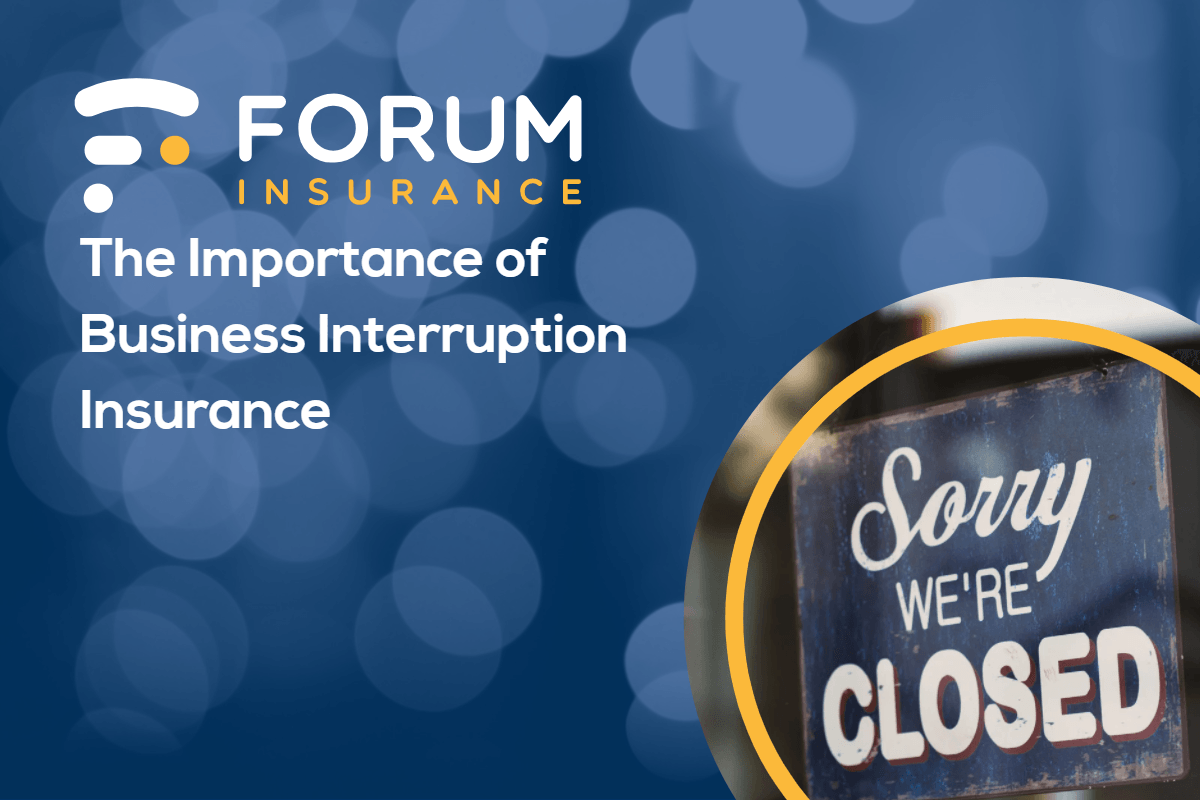
By Niraj Mamtora
•
29 Apr, 2022
Unexpected business interruptions can be financially devastating. Fortunately, there’s a way to prepare for them. The two most common forms of business interruption are fire and flood. Unfortunately, statistics are showing a trend towards increased rainfall in the UK. According to the Met Office, the UK was an average of 6 per cent wetter over the last 30 years (1991-2020) compared to the 30 before that. Flooding remains a risk to businesses, but not only from rainfall, as events like a burst water pipe can be just as problematic. A flooded building can take between two and six months to dry out and become habitable. While building and content insurance policies will cover the initial damage, businesses must consider how they’ll cover financial losses while unable to trade. This is where business interruption (BI) insurance comes in. During the recovery from an interruption, a business may be unable to operate whilst leads to a loss in revenue. This downtime, in turn, may result in the loss of irreplaceable staff and valuable customers. To minimise this risk, a business would benefit from trading at a temporary location while their main premises is repaired. Yet, traditional buildings insurance doesn’t tend to cover this move or the associated loss of income. BI policies can be added to building and content policies to fill this void. Policies can include: Compensation for lost income while the business is out of action and gross profits that would have been earned had the major event not occurred Operating expenses incurred , such as utilities and rent, even though the business has temporarily ceased Compensation for the increased cost of working , including the expenses of operating in a temporary location while repairs to the permanent premises are completed Help towards the cost of the employee payrol l BI insurance can be a lifeline for businesses in the event of a disaster. Businesses can feel safe knowing that they’ve prepared for the worst by adding BI insurance to their existing policies. Contact us today to find out more. Commercial Building Maintenance Tips There is never a better time than now for a commercial business to check make sure their buildings are properly maintained. Businesses should consider these commercial building maintenance tips: Routine maintenance checks — Pipework, boiler and plumbing systems should be regularly inspected year-round. These checks become even more important because a failure in one of these systems – eg not having hot water – will impact both customers and employees. Electrical analysis — Electronic components and appliances should be checked thoroughly to make sure they’re working safely and don’t present any risks. The review should include electrical switches, sockets and fuse boxes. Finding any cracks or signs of deterioration early will allow a business to correct the problem before it gets worse, saving time and money in the long run. Roof and gutter inspection — A thorough roof inspection will allow businesses to spot potential structural issues early and ensure gutters are free from debris. Intense rain spells—more likely with global warming —make it easier for gutters to become clogged, causing rotting and water damage to the fascia board. Flooding preparation — According to the Environment Agency, 1 in 6 properties in England (around 5.2 million properties) are at risk of flooding. Businesses should check if their insurance policy covers flood damage and consider how best to mitigate risk (eg storing stock above flood level). Alarm check — Businesses should examine and service any fire and burglar alarms to ensure they’re secure and protected. Though planning for a disaster is a lot of work, cleaning up after one is worse. Proper maintenance allows a commercial business to spot potential problems early and take action. Paying attention to regular maintenance will help a business avoid unnecessary costs down the line and ensure safety and security to its employees and customers. For those in doubt, help is at hand To find out how business interruption insurance can help your business, please contact your Forum Insurance account executive or email info@foruminsurance.com .

By Niraj Mamtora
•
22 Apr, 2022
For property owners and investors – buildings insurance should provide a crucial safety net, protecting property assets against unforeseen events. It should step in to cover the cost of repairs or rebuilding work after an insured event like fire or flood, but for all too many property owners, across domestic and commercial property that vital protection may not be all it seems. In fact, recent research has found that 80% of UK properties are underinsured – to put that in context, that’s around 587,000 high net worth homes and commercial property with a total value of £340 billion standing without adequate buildings insurance. What’s more, those numbers are heading in the wrong direction, having risen from 580,000 and £325 billion respectively in the space of 12 months. Disastrous outcomes This insurance gap is not something that any property owner or investor can afford to ignore, because it can have a significant financial impact if the time comes to make a claim. Research tells us that on average, underinsured buildings are covered for just 68% of the amount they should be. In practice that could lead to two potentially disastrous outcomes in the event of a claim. First, the insurer could apply a ‘Condition of Average’, a clause in many building insurance contracts that enables insurers to reduce claims on underinsured properties by the corresponding percentage. For example, a property owner claiming £100,000 to cover repair or rebuild work after an insured incident could only receive £68,000 in settlement if only 68% of the property value is covered by insurance. Second, and even worse, in significant cases of underinsurance, the insurer could even say that the policy is void as the client failed in their duty of fair presentation under the Insurance Act – and remember, it is the responsibility of the property owner to ensure that valuations provided for insurance purposes are accurate. So what is behind this alarming trend? It boils down to a number of issues. Inaccurate property valuations There is a common misconception that a property’s market value and its insurance value are interchangeable. In reality, an insurance valuation refers to the cost of rebuilding a property, which would include a range of costs not covered by a market valuation. They include materials and labour, but also the cost of site access and the rebuild value of areas surrounding the property, such as car parks, outbuildings, or trees. The bottom line is that a property value for insurance purposes must mirror the definition of buildings set out in the policy. Rising construction costs To make matters worse, even buildings that were accurately valued when a policy was taken out may be tipping over into underinsurance now, because of steep rises in the cost of building materials and labour. Clearly, that means the situation is worsening for any property that is already underinsured due to an inaccurate valuation. The facts are stark. Pent up construction demand built up during COVID-19 lockdowns, along with the effect of Brexit on EU imports and the loss of around 1.5 million foreign workers since the beginning of 2020 have driven construction prices up by as much as 15% in 2021. Meanwhile, price rises for specific building materials have been even higher – timber prices have risen by 20-50%, while the cost of sheet materials like oriented strand board has more than doubled. At the same time, heightened demand for construction materials overseas has also extended lead times for virtually all materials, which may again add costs to a building works. Indexing and day one uplifts lagging behind? It would be easy to assume that property owners are insulated against these rising costs by inflation indexing for residential property and day one uplift clauses in commercial buildings insurance, both of which are designed to defend against the impact of inflation on rebuild costs. However, with building material cost increases far outstripping baseline inflation and the retail price index, this may be a false sense of security - because an inflation linked uplift in cover will almost certainly fall short of the actual increase driven by material and labour costs. Act now to address underinsurance The bottom line, according to the research, is that 80% of UK properties are underinsured and those properties are on average only insured for 68% of the true value. With that in mind, property owners – particularly high net worth residential and commercial properties – should act now to review buildings insurance policies, paying particular attention to the accuracy of rebuild costs and sums insured. For those in doubt, help is at hand To find out the reinstatement value of your property, or any other information about our services, please contact your Forum Insurance account executive or email info@foruminsurance.com . At Forum Insurance we work with RebuildCostASSESSMENT to offer our clients the peace of mind that comes with accurate insurance valuations based on multiple data sources.

By Niraj Mamtora
•
22 Feb, 2022
This weekend we’ve seen two storms hit all parts of the UK leaving damaged fences, crushed vehicles and even the O2 Arena has been torn. It is no doubt that this damage has caused disruption to homes and businesses and we’re on hand to help. What to do once the damage has been caused You should report your claim as soon as possible to your insurer or contact us if you need any assistance. Insurance companies across the nation will be busy and having your insurance documents to hand will speed everything up. We (or your insurer if needed) will advise you of the best course of action, depending on the severity of the damage. You can carry out any temporary repairs to prevent further damage but never put yourself at risk to do this. Make sure you keep any receipts or invoices for work carried out but please don’t use your own tradesperson for full repairs unless you have been advised by us/your insurer to do so. If there is water coming into the property, and it is safe to do so, move contents to upper floors or higher areas to prevent further damage. Once the storm has passed, remove any covers on airbricks to enable any trapped water to escape and air to circulate. Never use the gas or electrical supply in a flooded property until a qualified person checks everything and tells you it is safe. YOUR INSURANCE CLAIM There are some keys things your insurer will likely ask you when submitting a claim for storm damage, so it’s a good idea to make a list of any damaged items and to take photos of the damage where possible. Your safety should always be your top priority , and you should particularly steer clear of areas with loose roof coverings or damaged walls. If it is safe to do, salvage your belongings to prevent further damage – but only if it doesn’t put you at risk. Due to the volume of claims your insurers will be dealing with, you may be asked to get a quote from a local tradesperson to repair the damage, to speed up the process. It is important you don’t authorise the work until you have had approval from your insurer to do so. If you can’t get a repair quote, or if your property is not safe or secure, let us know and we will advise you on the next best course of action. WHAT STORM DAMAGE CAN YOU CLAIM FOR? You’ll need to let us know exactly what has happened and what damage has been caused to your property so we can help you to make your claim. Typical damage to property following a storm can include: Damage to roofs including tiles or slates loose or missing, felt roofs completely lifted off and/or ridge or hip tiles missing or dislodged Damage caused by fallen trees or branches, or any other loose items Water damage inside your property We can assist you by helping you check your policy wording, as there are some things that your insurance policy won’t cover, for example damage to fences, hedges and gates. Your policy is also unlikely to provide cover for damage which is longstanding or due to maintenance issues such as: Cement or mortar deterioration on brickwork and chimneys Failed render on exterior of buildings Gradual deterioration to any part of the roof or building Aged flat roofs USING A REPUTABLE TRADESPERSON In surge events such as those we are currently experiencing where there is widespread damage to many properties, your insurer may suggest using a local tradesperson to offer a quote for repairs, as this is often the quickest way to get your property back to normal. When choosing a tradesperson to get a quote, you should consider: Avoiding cold callers – unfortunately extreme events can result in opportunists looking to take advantage of those in need. Be alert to scams and be aware that independent flood or loss assessors may offer to manage your claim on your behalf, but many charge a fee which could be taken from your insurance settlement Seek recommended or established traders. Try to look for contractors who have roofing trade accreditations, such as Marley, Redland or National Federation of Roofers (NFRC) Don’t pay for any repairs upfront – a reputable trader will complete the work before requiring payment Check if the trader offers warranties/guarantees on their work If possible, obtain more than one quote for comparison, although bear in mind cheaper is not always best Any quote you get will need to include a full breakdown of the works required and be supported by photos of damage, if possible and safe to do so. Once you have received a quote that you are happy with, email a copy to us immediately so we can help progress your claim with insurers as quickly as possible. As well as any damage to buildings, make sure you list any belongings that have been damaged by the storm inside or outside your property, along with supporting photos. Don’t throw anything away as it may be needed for the claims process. It can be difficult in such stressful situations to know whether the costs you are being quoted are fair. Of course, prices quoted will be higher or lower depending on where in the UK you are based, the type of property you have and the extent of the damage caused. Checkatrade have produced this guide (https://www.checkatrade.com/blog/cost-guides/cold-weather-damage-costs/) into average damage costs, including gutter replacement, roof repair and ceiling water damage repair. To report a claim please email claims@foruminsurance.com and include your client number and the appropriate contact details Stay up to date Finally, please keep an eye out on our Forum Insurance social media channels for additional risk management guidance on protecting homes and businesses from storm damage.

By Niraj Mamtora
•
04 Feb, 2022
What are the key changes? The most fundamental change of principle is the inclusion of a Hierarchy of Road Users designed to place road users in order of potential harm. The aim is to improve safety for vulnerable road users (VRUs), in particular pedestrians, cyclists, and horse riders. The updated text states that "those in charge of vehicles that can cause the greatest harm in the event of a collision bear the greatest responsibility to take care and reduce the danger they pose to others. This principle applies most strongly to drivers of large goods and passenger vehicles, followed by vans/minibuses, cars/taxis and motorcycles.” In order of the potential to cause harm, the hierarchy can be represented as follows: Large vehicles / HGVs Vans / Minibuses Cars / Taxis Motorcyclists Horse Riders Cyclists Pedestrians With Vans and HGVs sitting at the top end of this hierarchy, there's additional emphasis on the responsibility that sits with the drivers of these vehicles in maintaining safe practices on the roads. Rule H3 - You should not cut across cyclists going ahead when turning into or out of a junction or changing direction or lane, just as you would not turn across the path of another motor vehicle. This applies whether cyclists are using a cycle lane, a cycle track, or riding ahead on the road and you should give way to them. Do not turn at a junction if to do so would cause the cyclist going straight ahead to stop or swerve, just as you would do with a motor vehicle. You should stop and wait for a safe gap in the flow of cyclists if necessary. Rule H2 - At a junction you should give way to pedestrians crossing or waiting to cross a road into which or from which you are turning. Rule 151 - In slow moving traffic motorists should allow pedestrians or cyclists to cross in front of you. Rule 140 - Motorists should give way to cyclists in a cycle lane especially when approaching from behind. Rule 163 - As a guide: Leave at least 1.5 metres when overtaking cyclists at speeds of up to 30mph and give them more space when overtaking at higher speeds. Pass horse riders and horse-drawn vehicles at speeds under 10 mph and allow at least 2 metres space. Allow at least 2 metres space and keep to a low speed when passing a pedestrian who is walking in the road (e.g. where there is no pavement). You should wait behind the motorcyclist, cyclist, horse rider, horse drawn vehicle or pedestrian and not overtake if it is unsafe or not possible to meet these clearances. Rule 212 - Give motorcyclists, cyclists, horse riders, horse drawn vehicles and pedestrians walking in the road, at least as much room as you would when overtaking a car. Drivers should take extra care and give more space when overtaking motorcyclists, cyclists, horse riders, horse drawn vehicles and pedestrians in bad weather (including high winds) and at night. Forum Insurance would also include: Rule 72 - In addition to setting out safe passing distances, the right for cyclists to ride in the centre of their lane, to ensure that they remain visible. At junctions or on narrow roads, cyclists can maintain their central position where it would be unsafe for a driver to overtake. Rule 239 - Opening the door of parked vehicles to avoid injury to cyclists, motorcyclists and/or pedestrians with the introduction of the ‘Dutch Reach’. This means that when opening your vehicle door, you should use your hand furthest from the door to reach across your chest. This movement forces the body and head to turn, allowing you to scan your rear view mirror, side mirror and check over your shoulder into your blind spot, enabling you to see if it is safe before opening your door. Another significant update also on the horizon in 2022 is the introduction of a new driving offence – Causing Serious Injury by Careless Driving punishable with an obligatory disqualification from driving and up to two years in prison. Previously offences for causing serious injury were specific to dangerous driving and driving when disqualified but this has now been extended to include careless driving which means there is now an increased risk of a custodial sentence and loss of driving licence for even a minor lapse of concentration. Serious injuries are also much more likely where pedestrians and cyclists are involved. What does this mean? It’s vital that our commercial customers are aware of these changes and of the potential impacts on their business. They have a responsibility to ensure their drivers are informed of these updates and are prepared for any changes in VRU behaviour as a result. In addition, the introduction of the new offence also lowers the threshold for prosecution, increasing the risk of severe punishment of up to two years imprisonment. It’s important that drivers themselves are aware of this increased personal liability when behind the wheel. Barry Mamtora, Founder and Director at Forum Insurance commented “Employers must make sure that their staff are made aware of the changes to the Highway Code to prevent potential confusion or conflict on the roads. Also, where appropriate, they should put in place arrangements to ensure that everyone understands the practical requirements when driving for work. Employers should take this opportunity to promote the wider safety message about sharing roads safely and raising the awareness of vulnerable road users so that everyone can contribute to making the roads a safer place.“ Impact on claims In line with this new legislation, we may start to see more VRU-related claims; claims which, by their very nature, can result in serious injury or fatalities. Such claims can be devastating for all involved and can be costly depending on the damage caused. In addition to this, we may start to see claimant solicitors looking to capitalise on these changes after the recent Whiplash Reforms, which came into effect in 2021, changed the way low value whiplash claims are managed. Claims involving VRUs are exempt from this new process, allowing claimant solicitors the ability to recover substantial damages and costs, making these claims potentially more lucrative, and therefore attractive to claims management companies.

By Niraj Mamtora
•
19 Oct, 2021
Millions of people across the UK are currently on NHS waiting lists – In N. Ireland it is 465,000 people and over 5.6 million in England are queuing for treatment. The pandemic has increased waiting times by 50% leaving some patients suffering without reason. The latest data available is from April 2020 to July 2021 and includes knee and hip replacements, cataract surgery and other common procedures. What is Health Insurance? Health insurance gives you access to private healthcare in the UK and helps cover the cost. This can be anything from private GP appointments to cancer treatment. Health insurance is also called medical insurance, private medical insurance or private health insurance. They're all the same thing. There are a number of different health insurance providers, depending on your lifestyle, requirements and expectations we can match you with the correct one. For example, if you live a healthy life, Vitality Health Insurance will reward you with lower premiums, discounts and freebies the more active you are. The benefits of health insurance: Faster access to health care meaning a quicker diagnosis and treatment. Access to specialist drugs and treatments not covered by the NHS. Choice on where you are treated and by whom. How does health insurance work? You pay monthly health insurance premiums. When your GP refers you to a specialist, you make a claim with your insurer. You'll be able to choose who treats you, and at which hospital. Choose your medical insurance plan Choose your insurer and your excess amount. This is the amount you agree to pay towards your treatment if you make a claim. The higher your excess, the lower your premiums. Pay your premium This is the cost of your medical insurance plan. It’s usually taken as a monthly Direct Debit. See a GP when you're unwell This can either be your NHS GP or a private GP (Via physical or virtual GP). If you need to see a specialist or get treatment, they'll refer you. Contact your insurer and make a claim When you contact your insurer, they can find a consultant for you. They will ask about your symptoms and when they started. They will assess your claim. When it’s approved, you can receive treatment. Your private healthcare bill is paid Once you've received your treatment, the hospital will send your insurer the invoice. In some circumstances you may need to pay your excess. For example, if your treatment cost £1,000 and your excess is £250, the insurer will cover £750, and you’ll pay £250. What does health insurance cost in the UK? Monthly premiums vary from person to person. Premiums are calculated based on many factors, like your: Age Current health Lifestyle factors (for example whether you smoke or not) What your chosen excess is – the higher your excess, the lower your premium will be. Premiums begin from £1 a day but vary depending on the above factors. What does health insurance cover? Private medical insurance helps cover the cost of private medical treatment. This includes hospital stays, medicines, and surgical procedures. Health insurance in the UK doesn't usually cover long-term conditions like diabetes or any you had before you bought your plan. What's covered? Acute conditions These are conditions where symptoms develop quickly and treatment is short-term. Examples include hernias and joint injuries. Private hospital stays Specialist consultations Diagnostic tests Cancer treatment Oral surgery Weight loss surgery Corrective surgeries Mental health support Menopause support. What’s not covered? Long term, chronic conditions Conditions where symptoms appear slowly and can worsen over time. For example, diabetes. Pre-existing conditions Pregnancy, childbirth and related conditions Cosmetic treatment Organ transplants Any treatments or practices that are experimental, unproven or unregistered Any treatment for learning and behavioural problems, or dementia. Is it worth getting private health insurance in the UK? This depends on your individual circumstances. It’s worth considering private health insurance if you: Can afford to pay monthly premiums (Premiums begin at £1 a day) Want quick access to healthcare Want to ensure you are protected from any sudden, large private medical bills. Do I need to have a medical before I take out health insurance? No. If you don't have any pre-existing medical conditions, you just need to: Give the insurer your personal details Pick your level of cover Answer some basic questions. If you do have a pre-existing condition, the insurer may need additional information from your GP. Can I add people to my health insurance plan? Yes, you can add your husband, wife or partner, and your children to your health insurance plan. If you're looking to discuss life insurance, request a call back via the green phone icon or email us at info@foruminsurance.com and we'll be in touch.

By Niraj Mamtora
•
11 Oct, 2021
Life insurance, or life cover, is an insurance policy that pays out a lump sum to your loved ones when you die. There's no restrictions on how they can use the money. It can help them cover things like debt repayments and funeral costs. Our cover gives you peace of mind that your family will be supported after you’re gone, but benefits you, too. You'll get discounts on leading brands to help you live a healthy life, and rewards for getting active. Do you need life insurance? Life insurance is a good idea if you want to ease the impact your death could have on your loved ones. Most people choose to buy it at key life stages, like: Getting married – Joint Life insurance Buying a home – Mortgage Protection Starting a family – Life insurance for families Nearing retirement – Life insurance for over 50s What are the different types of life insurance? There are two types of life insurance policies - term life insurance and whole of life insurance . The most popular and cheaper of the two is term life insurance , which covers you for between five and 70 years. If you pass away within the policy term, your loved ones receive a lump sum. If you’re buying a home, you can get term life insurance to cover your mortgage. If you die before it’s paid it off, the policy pays off the remaining amount. So your family can keep their home and not have to worry about the repayments. Whole of life insurance lasts your whole life so your family get a guaranteed lump sum. The policy ends when you pass away, so the monthly premiums are more expensive. How much life insurance do you need? The amount of life cover you need will vary depending on your personal circumstances. It’s worth thinking about how much: Is left to pay on your mortgage Other debt you need to pay off Money you’d need for childcare or education Money your family may need to cover your funeral. In the UK, the average funeral costs £3,989 (Royal London National Funeral Cost Index Report, 2019) You can afford to pay on life insurance premiums Once you’ve bought a life insurance policy, review the amount of cover you need every year. As your circumstances change, so will the cover amount you need. For example, if you pay off some of your debts or have more children. How does life insurance work? You'll pay monthly premiums. When you pass away, your loved ones will make a life insurance claim, and receive a lump sum. Decide on the type of policy you need Choose between term life insurance or whole of life insurance. Choose your cover amount This is the amount of money that your loved ones would receive as a lump sum. Pay your monthly premium A premium is the payment you make in exchange for your policy by a monthly Direct Debit. Claiming When you pass away, your loved ones will make a claim with the insurance provider. Payment Once the claim is approved, they’ll receive a lump sum into their bank account. How much does life insurance cost? The cost of life insurance depends on your health and lifestyle factors, like: Your height Your weight Any pre-existing health conditions you may have If you smoke If you're employed in a high-risk occupation e.g firefighter Our life insurance starts from £8 per month but depending on your circumstances and activity levels you can control your ongoing premiums. What does life insurance cover? Life insurance covers: Death Your loved ones will get a lump sum when you die. Terminal illness If you’re diagnosed with a terminal illness with a life expectancy less than 12 months, you’ll receive the payout. Life insurance may not pay out if: Your policy has expired If your life insurance policy expires and you haven’t claimed, it won’t pay out to your family when you pass away. If you stop paying your premiums If you don’t keep up with your payments, your cover stops. You die as a result of suicide If you take your own life, your family might not receive a payout. If you're looking to discuss life insurance, request a call back via the green phone icon or email us at info@foruminsurance.com and we'll be in touch.

By Niraj Mamtora
•
06 Oct, 2021
A sustained rise in construction costs this year is increasing the likelihood of significant underinsurance of buildings in the UK. We spoke to RebuildCostASSESSMENT.com who informed us that on average buildings are covered for just 68% of the amount they should be in Britain. However, with rebuild costs rising rapidly, the current situation is likely to be even worse. According to the Builders Merchants Federation (BMF) , prices have risen by between 10% and 15% for products and materials this year. However, some products, such as timber, have seen prices go up by 50% and by as much as 100% for oriented strand board (OSB) and other sheet materials, which are all key housebuilding components. Forum Insurance managing director Barry Mamtora: “Following Covid lockdowns and Brexit import restrictions has led to a lack of materials causing the price of rebuilding to skyrocket. This results in policyholders having insufficient cover which can potentially leave them out of pocket.” Indexation adjustments Between July 2020 and July 2021, the cost of materials rose by 20%, according to the Office for National Statistics (ONS) . The RICS’ BCIS general building cost index is forecast to be 8.8% for the year to September 2021, up from 3.6% for the year to March 2021. Barry added: “In our experience speaking to our clients in the construction industry, we know that material costs have nearly doubled. Covid lockdowns and Brexit employment laws have resulted in a shortage of available labour workers increasing costs further. This together has created a perfect storm for both commercial and residential buildings to be heavily underinsured." Rates used by RebuildCostASSESSMENT.com on commercial property are taken from the RICS BCIS service and are subject to indexation adjustments on a fortnightly basis, allowing for recent increases in material and labour costs. For High Net Worth (HNW) homes regular analysis of multiple data sources, including cost plans from building contractors, is reflected in rebuild rates used along with adjustments for current increases. Forum Insurance has teamed up with RebuildCostASSESSMENT.com to offer our clients preferred rates on a report. The report is conducted remotely so in many cases you won’t have any disruptions. To find out more and be confident you have the correct insurance, contact us today .

By Niraj Mamtora
•
28 Jul, 2021
Electric Vehicle Trends You’ll see more and more Electrical Vehicles (EV) on the road, especially with their environmentally friendly approach (when compared to traditional vehicles) resulting in low running costs. The International Energy Agency Global EV Outlook of 2021 saw a 43% increase in electric car sales in 2020 and that trend is only due to increase as the UK bans new sales of petrol and diesel cars from 2030. EV owners have to worry about the vehicle range, charging speed and the increased upfront costs of ownership including vehicle insurance. But what is different with EV insurance and regular vehicle insurance? We’ll discuss the risk changes below. Insurance implications In addition to the current vehicle insurance risk rating such as vehicle insurance group, vehicle performance, driver risk profile, driver claims and points – EV’s are a new product with new technology. This results in new insurance risks, whether it’s a battery over charging and over heating or the increased chance of a battery combusting in the event of a road traffic accident. If the EV’s battery needs repairing then the whole battery will need to be taken apart to locate the fault which incurs high labour charges. The EV’s have a lot of integrated components including sensors which can be expensive to replace and source. These are all connected via the EV’s software, which in the event of a fault may not let your vehicle function as designed. This software is designed to transmit your vehicles data over the internet, this is to improve the drivers experience and safety. As you can imagine, this poses a cyber security threat, if a hacker was to maliciously attack your vehicle’s software or even hold your vehicle for ransom it can be costly to repair. Having the correct coverage to protect against this will become increasing important as the EV network grows. Due to these risks having an insurance broker will be vital in advising customers with the correct levels and types of coverage. This will help mitigate any increase in financial losses that can occur with the higher costs involved with acquiring and repairing EV’s. The future shows that Electric Vehicle sales are on the rise, especially with the increasing benefits, government grants and regulation changes. This can only signal the change in vehicle insurance and the complexities it will overcome to protect customers. Having an insurance broker will allow customers to be matched with the correct policy for them and their EV to secure a competitive premium. Whether you have one or more vehicles, we'll create a bespoke insurance policy for you and your electric vehicle. Get in touch with us on 0208 909 2899 or at info@foruminsurance.com

By Niraj Mamtora
•
16 Jun, 2021
Hopefully, you never need it, but there’s a new claims portal launched The Ministry of Justice launched a new claims portal on 31 st May 2021. The new portal is for claiming compensation for minor personal injuries caused by road traffic accidents. It was developed by the Motor Insurers Bureau on behalf of the Ministry of Justice, it is a free and independent service for people injured in road traffic accidents to claim compensation for any accidents that occur on or after 31 st May 2021. The purpose of the portal is to help claimants through the process of making a claim, managing a claim, obtaining a medical report and receiving compensation. It delivers the reforms set out in the Civil Liability Act 2018 . With around 600,000 claims each year, the cost of compensation for low-value whiplash injuries caused by road traffic accidents has increased motor insurance premiums despite the UK having one of the safest roads in Europe. In short, the aim is to lower motor insurance premiums to improve the insurance market, rule out false claims and ensure compensation is paid out fully. It will deliver a new digital whiplash portal to make claims for road traffic-related personal injury under £5,000 including whiplash claims. Increases the small claims limit for road traffic accident-related personal injury claims from £1,000 to £5,000 so legal costs are no longer recoverable by the successful claimant. Introduces a new fixed tariff of compensation for whiplash injuries with an injury duration of up to 2 years. A ban on settling whiplash claims without obtaining medical evidence to rule our false claims. Hopefully, you never suffer a road traffic accident and need to make a personal injury claim. But bookmark this email just in case so you can go through the official Ministry of Justice service at: https://www.officialinjuryclaim.org.uk /

By Niraj Mamtora
•
02 Jun, 2021
At Forum Insurance we know that if we look after our clients, our clients will look after us. With over 30 years of experience we ensure our clients have the correct covers tailored to protect themselves and their business. We use our extensive access to the wider insurance market to find the best cover at the best price. We are pleased to see the Financial Conduct Authority (FCA) announce that from January 2022 home and motor insurance policies renewals will be offered the same price as new customers. Sheldon Mills, Executive Director, Consumers and Competition at the FCA commented; “These measures will put an end to the very high prices paid by many loyal customers. Consumers can still benefit from shopping around or negotiating with their current provider – but won’t be charged more at renewal just for being an existing customer.” Click here to read the full press release. This is already a part of our renewal process; as we approach the insurance market and search for the best cover and price for each policy. This is one of our key reasons we have a 4.8 out of 5 star rating online . The new rule set by the FCA will improve genuine competition within the insurance market, as firms will no longer be able to offer below-cost prices to attract new customers. This predatory pricing practice harms consumers long term by increasing insurance premiums for everyone. We look forward to seeing the FCA’s next steps and welcome any changes that improve the insurance market for our clients. Want to experience how we put our clients first? Call us on 0208 909 2899 and get a same day quote.

By Niraj Mamtora
•
19 Apr, 2021
What role does insurance play in securing long term success? Retail stores play a vital role in the local community across the nation by creating jobs and providing access to essential products and services. In our 30 years experience protecting retail and convenience store insurance risks, we know that to achieve long-term success retail store owners need their business to run smoothly, and most importantly be protected from any unforeseen incidents. Insurance is designed to do exactly that, protect your livelihood, your assets and your customers – paving the way for your business to truly grow. There are many insurance covers available to protect you and your business. Whether you’re looking for a new policy or checking the suitability of your existing policy we’ll discuss the plan to success. Liability Cover There are two main types of liability insurance to provide protection against accidents in your store. Public liability insurance is designed to cover compensation payments and legal costs if a member of the public sues your business because they have been injured or their property has been damaged. For example, if an employee fails to put out a wet floor sign after cleaning the floor and someone slips and breaks a bone. In this instance your public liability insurance would cover the financial impact of an unexpected claim up to the maximum stated limit of liability. Employers liability insurance is a legal requirement, and is designed to protect you from financial loss if your employee becomes ill or injured whilst under-taking their work for you. Business Interruption Cover In the event your business cannot function as usual you will most certainly start losing income. Business Interruption insurance will put your business back in the same trading position it was before the unforeseen event occurred. This insurance will cover your loss of revenue or profit for the period of inability to trade. With this cover in place you can assure that any interruptions in your business, will not result in financial loss. No more sleepless nights that a burst water pipe or fire damage are costing you lost income as your store is closed. Contents Cover Protecting vital assets like your fixtures, fittings, and equipment is essential for the function of any business. You should ensure your contents are covered on a new-for-old basis to secure your longevity in the industry. Accidental damage, a burst pipe or an electrical fire are risks we can prepare for, but the replacement costs can be enormous. Having the incorrect level of coverage will leave you out of pocket, due to the ‘averages clause’ most insurers follow. This clause can result in insurers to reducing claims settlements if you accidentally or intentionally underestimate the value of your contents. For example, you have valued your contents at £20,000 but the actual value is £40,000. This is an underinsurance of 50%, according to the clause the insurer is entitled to pay out only 50% of the claim value. It’s horrible to think, but to continue this example the business is burgled and the business claims for £12,500 of losses. The insurer can use the average clause to pay out 50% of the value of the claim meaning only a settlement of £6,250 and the other £6,250 would be paid from your business. Self-insuring or underinsuring can save you a small sum of money in the short term on the premiums, but in the event of a claim those savings can be wiped out in an instant setting you back a lot further than your initial saving achieved by reduced levels of cover. Don’t be caught underinsured. Typically the store’s general stock is not covered under your contents insurance and will need to be covered separately on the policy. For grocers, cigarettes, wines and spirits should be covered separately to general stock. Deterioration of Stock If you have frozen stock, this should also be covered separately, which can provide cover for damaged stock in the event of breakdown of the fridge or freezer. If you have a cold-room there are increased risks and this will need to have its own provisions within the policy. Goods In Transit Goods in transit will cover you for any loss or damage to stock while traveling between your supplier(s) and your store(s) up to your chosen limit. Theft Of Cash Theft is a daily risk your convenience store faces. Whether you’re open or closed, there will be cash at your premises. The cover available is often restricted depending on the circumstances, for instance there will be a limit on cash covered in the till, in a locked safe overnight, and when in transit. If you’re in doubt that you’re sufficiently covered, use your busiest day possible and set your cover to those levels. If you’re transporting cash from your store to the bank or bank to the store then you would need cash in transit. Fidelity cover is when your employees steal cash from your business, it isn’t always required but as you grow so will your risk of it occurring. What Now? Not every business has the exact same requirements and risks. Getting an expert review of your insurance with a broker will put your mind at ease and secure your path to long term success. At Forum Insurance we offer free reviews and quotations. We will create you a tailored insurance policy with the covers that are a right fit for you and your business at competitive rates. Request a call back via the green button on the right.

By Niraj Mamtora
•
10 Feb, 2021
Valentine’s day is full of romance and excitement for many people, but if you’re not careful it has the ability to leave you emotionally and financially distraught. There are many risks which are not considered which can result in an increase in insurance claims for lost or stolen jewellery, fires caused by candles or water damage from overflowing baths. Without the right insurance cover, the claim for the above reasons might be declined. This can leave you without compensation resulting in an emotional and financial loss. What can you do to reduce the chances of something going wrong this Valentine’s day? Expensive jewellery and watches The gift of jewellery is almost synonymous with Valentine’s day, most of these items can be covered by your home contents insurance policy. Single item value There is a value limit for any single item which is covered under your policy, an industry standard is around £1,000 although this does vary. Any item valued above this will need to be specified on the policy. Depending on the price of the item this can be a problem, we recommend checking your insurance policy for “single item limit”. If the item you want to insure exceeds the single item limit then contact your insurance company to list the item, note, you may need to pay extra for your cover or insurer it separately depending on the value. For your benefit, we recommend you keep ownership of the valuable items such as original receipt for the item, photographs or official valuations. In the event of a claim these will be vital to a successful claim. Away from home personal possessions There is a greater risk of something being lost or stolen when away from home, especially if it’s expensive jewellery, equipment or technology. Without cover away from your home you won’t be able to claim. Most standard policies only allow you to claim for lost or stolen items in and around the home so we recommend requesting this cover or using an insurance broker that can tailor your policy to your needs such as Forum Insurance. Fire Hazards Often you don’t think of fire hazard because you’ve lit candles before, you’ve used your fireplace or electric heater before and nothing has gone wrong. But in fact the risk of fire is always there but be more cautious on Valentine’s Day. Remember to turn off all candles, gas or electric heating sources when out of the room, going to sleep or when the area is heated up enough. Flood Hazards I doubt you’ll experience a flood in the traditional thought of it, from a river or excessive rainfall but more likely from a romantic bath. Remember to turn off the taps and remove the bath plug to stop it overflowing. If the bathtub overflows it can ruin your bathroom causing damp or even impact lower floors by destroying ceilings and floorboards. A leak from your bathroom to a floor below causes the cost of a claim increasing, which will impact your pocket through your insurance premium, or at the worst you’ll have to pay for repairs yourself. We recommend having accidental damage which will provide compensation to your property and contents through, yes, accidental damage. It is not often standard on policies so be sure to check your documents. Without it, you will be left having to pay for repairs and compensation out of pocket for the water damage. What’s next? Next, get an insurance policy that will cover you this Valentine’s Day for all the mentioned risks. At Forum Insurance it is within our consultation phase that we assess what type of home insurance policy you need. In fact, we will custom build you a policy so that you don’t have the wrong cover and to make sure you’re not overpaying. For more information speak to a member of our team on 0208 909 2899 or visit our website to request a call back.

By Niraj Mamtora
•
02 Feb, 2021
The recent pandemic times have left everyone in a financial crisis, and during such phases, it is advisable to keep your budget in check. There are various ways in which you can cut back on the costs, and no matter how small that saving is, it will compound over time. One of the things that require our time and investment in home insurance. These policies act as a safety net in case of any theft or accident. This can account for a significant chunk of our income, so we need to be aware of how to bring the insurance premium down. One resourceful way of doing that is by investing in improved home security. The money that you spend in the security installations will be covered over time in the form of a decreased annual premium. Here are some ways you can upgrade your home security and eventually reduce premium costs: Security Locks Investing in secure locks can help in reducing your premium insurance costs and ensure the safety of your home. But this includes modern locks and not the conventional style locks as thieves are familiar to them. If you already have some sort of lock system in place, you can opt for an upgrade. It is better, however, that you go for locks approved by the British standard as they have been subject to various tests to ensure they are resistant to all sorts of attack techniques. Alarms This might sound reasonably traditional to you, but modern alarms are a great way to secure your house and intimidate anyone who tries to break in. The warnings come in many different forms, such as smoke alarms or home intruder alarms. The smoke alarm can either be a standalone variety that will go off if there is any smoke in the premises of a system alarm that automatically calls the firefighters if it recognises smoke inside the house. It is recommended to do a fire drill just to confirm the functionality of these alarms and to be on top of any maintenance or wear in tear, especially in terms of battery replacement. Home intruder alarms are usually installed on entry points such as doors or windows and automatically make a loud sound once they are triggered. These are often wireless and some with pet-friendly sensors to reduce any discrepancy. Some of them are designed in a way that does not make noise but alerts the security officials in the area to reach the site of the breach. CCTV Installation Modern technology makes way for new and improved methods of home security. CCTV cameras are one such upgrade that puts your mind at ease with regards to home security. Installing a CCTV camera increasingly lowers your chances of a possible theft which then gradually leads to a lower premium. You can establish one or several cameras in various locations to monitor every activity that occurs in your home premises and surrounding areas. The entire footage is recorded and connected either to your phone or a backup memory card so you can easily access it if needed. Neighbourhood Watch Scheme The neig hbourhood watch scheme has been around for many years and is still considered to be a valuable asset in maintaining security. It not only looks out for the community but also makes others keep a keen eye out for any unwanted entry in your house too. This scheme is also a great way of spreading awareness among the local communities on how to protect themselves against any harm. It brings together the community members in a way that serves every person. Overall, it is believed to reduce premium costs so ultimately, you would be saving up as well as returning the favour to the community . Final Thoughts There is no doubt in the fact that security policies markedly reduce your home premium by a fraction of the total cost. All the retained money can be used elsewhere either for personal expenditures or just savings, the true benefit is peace of mind.

By Niraj Mamtora
•
27 Jan, 2021
The legal definition for a sole trader states that it does not have a separate legal existence from its owner. Keeping this in mind, all sole traders must know that business insurance is vital for them to protect their business and personal interests. After all, running a business all alone involves putting your financials in a lot of risks. So, better be safe than sorry, and get yourself business insurance to protect you from the worst! Here at Forum Insurance, we tailor the perfect business insurance for sole trader to ensure that all their personal and business interests are safeguarded so they can enjoy complete peace of mind and take risks that would help their business grow! Why Is Business Insurance Vital For Sole Traders? There are plenty of reasons why a sole trader must get business insurance, no matter how big or small their business is. Here are few of the several reasons why they should do so! Insurance Keeps Your Business Running Smoothly As you might already know, sole traders cannot afford any time off, and they need to work continuously to keep on earning their living. Without you working around the clock and managing everything, your business will take a quick dip. However, this is something that you can control. What if something happens that is out of your hands? For instance, a theft or a robbery? Well, even if you are working around the clock, a theft or a robbery can still halt your business for some time. However, if you have business insurance and your claim succeeds, all the losses suffered and the profits you have to forgo because of a non-functioning business would be paid by your insurance company, bringing your business back on its feet! Builds Credibility Having business insurance plays a great role in building credibility in the eyes of your prospective clients and customers. An insurance builds trust, and gives reassurance to the clients that you are a safe bet in case things go south as you have complete coverage! Business Insurance Protects Your Personal Assets As a sole trader, your personal assets are at risk of lawsuits as well. This means that in case you go bankrupt or liquidate for whatever reason, claimants can come after your personal property to recover money. A business liability insurance, professional liability insurance, or malpractice insurance can safeguard your business and personal assets in case you lose a personal injury claim or any other lawsuit. You Are Responsible For Property Damage And Other Liabilities Being a sole trader, you are the only one responsible for any property damage that occurs on the premises for whatever reason. If you want it to be covered, you need to have business insurance, or else paying it all from your pockets is nearly impossible. On the other hand, if an employee or a customer gets injured while on your business property, they have the legal right to sue you for compensation. Here, considering all the legal expenses and the damages, you would need business insurance to safeguard your business, or you would most probably liquidate. Different Types Of Business Insurances There are multiple kinds of business insurance policies for you to choose from. Hence, it is essential that you have adequate knowledge about them all. Sole Trader General Liability Insurance The general liability insurance protects you when a client brings a claim against you. This insurance provides you with all the legal costs of handling the lawsuit and even the compensation in case you end up losing it. Other risks such as bodily harm and property damage are also covered in the general liability insurance. Sole Trader Products Liability Coverage As the name itself suggests, the sole traders liability coverage protects your business against claims brought forward due to incidents arising from your products. This can also be added with the general liability insurance, but it totally depends on the insurance policy. The claims are generally brought forward by people who have a negative effect on their business because of using your product, or by those who are harmed or injured in any way because of using your product. Professional Indemnity/Liability This specific type of insurance protects you in case your customer or client suffers from a loss due to an error you made while providing them with a service. The loss is often in monetary value, and that client is looking for compensation for the error you made. Professional Indemnity will protect you from such legal actions. Sole Trader Commercial Auto Insurance If you use any vehicle for commercial purposes, you need to get commercial auto insurance as well. It will protect you from any unfortunate events such as accidents, and even personal injury to other people and employees. Some insurance policies also protect all the vehicles being used by the business from vandalism and theft. Life Insurance Getting life insurance is essential as part of your business insurance. Being the sole owner, in case the worst happens and you lose your life, life insurance ensures that the beneficiaries receive a considerable amount of money. It will allow your family to be financially secure after the only breadwinner passes away. With complete peace of mind of their family being protected, a sole trader can work more efficiently on their business and be as profitable as they can. Hence, speak with expert insurance brokers such as those at Forum Insurance so they can safeguard all your interests and tailor the best possible Business Insurance for you. Conclusion In a nutshell, allow experts at Forum Insurance to do all the hard work for you and let them use their expertise to make the most viable Business Insurance policy for you at highly competitive prices! Once you are covered, you can focus on things that would help grow your business and profits.

By Niraj Mamtora
•
20 Jan, 2021
How does GAP Insurance protect you from the hidden costs of car ownership? One of the products you’ve probably heard of but not had explained properly is Guaranteed Asset Protection (GAP) Insurance. This article will give you all the facts so you can decide if it’s suitable for you or not. There are 2 keys thing to note; All new cars depreciate, in fact according to The AA, on average a brand new car loses 60% of its value after 3 years. In the event of a total loss (theft or write off) a motor insurance policy will only payout the current market value of the car and not the value you paid at purchase even if its a fully comprehensive policy. What is GAP Insurance? GAP insurance is an additional insurance policy that in the event of a total loss scenario pays the shortfall between the payout from your motor insurance policy and the amount you paid for the car brand new (including any outstanding finance). How did you purchase your vehicle? Finance Agreement or loan As stated before, a fully comprehensive car insurance policy will only pay out the current value of your car in a total loss scenario. If you have a total loss you will still be liable for any interest owed on the loan, possibly leaving you in a position of negative equity because you owe more than the car is valued. This can occur in a total loss scenario if: You’re paying a lot of interest; A motor insurance policy will pay out the current value of the car which does not include any interest owed on the finance agreement. This interest would still need to be paid by yourself, resulting in outgoing payments for a car you no-longer have. The car's value is depreciating; As the depreciation increases, the car's current value decreases resulting in a lower payout from the motor policy, you wouldn’t be able to buy a new-for-old with the payout. The agreement deposit is small; A small deposit on a loan will usually have a high servicing cost resulting in a high amount of interest owed, again possibly leaving you in negative equity. You’re paying the debt off slowly (over 3-5 years) On average cars depreciate 60% after 3 years and usually the monthly payments don’t decrease, meaning you could be paying off a car which is not worth much. Your finance product leaves you with a lump sum to pay at the end These ‘balloon payments’ are common, usually you pay it to keep the car, or you hand the car back. In a total loss scenario, you don’t have the car to hand back resulting in a lump sum owed which might not be covered by the motor policy claim. Imagine you’ve just had your car stolen or written off and you still owe money on the car after the motor insurance payout. You can’t purchase a new car as you’re still paying off the loan or saving up to pay the balloon payment. That's where GAP insurance comes in handy. Cash payment Buying a car with cash poses less problems as you don’t have to worry about any interest owed or any balloon payment. The only problem is depreciation, cars depreciate the fastest in the first 3 years of ownership, in fact as soon as you drive your car out of the dealership it is considered used and begins to depreciate. Let's use an example for this: You bought a brand new car for £50,000 cash and it was stolen or written off after 3 years. According to the AA, you would only get its current value estimated at £20,000 from your motor insurance. Clearly this isn’t enough to buy the equivalent brand new car and you would end up asking yourself why you didn’t purchase GAP insurance which would have paid you an additional £30,000 so you could yourself get that new model you’ve had your eye on. Generally, cash purchasers are aware of the upcoming depreciation and accept it as part of their purchase as they plan to keep the car long-term or gift it to someone they’re close to. How much does GAP insurance and where to get it? The most expensive place you can purchase GAP insurance is with the car dealership, directly. That is because they know you are functioning on an emotional high and want to capitalise on it. In fact, in 2015 the FCA ruled that car dealerships cannot sell you GAP insurance unless the customer has had 2 clear days breathing space as their practices were harmful to clients. Now you know why GAP insurance can help you, why not get a quote live on the Forum Insurance website here and you can be covered in less than 5 minutes!
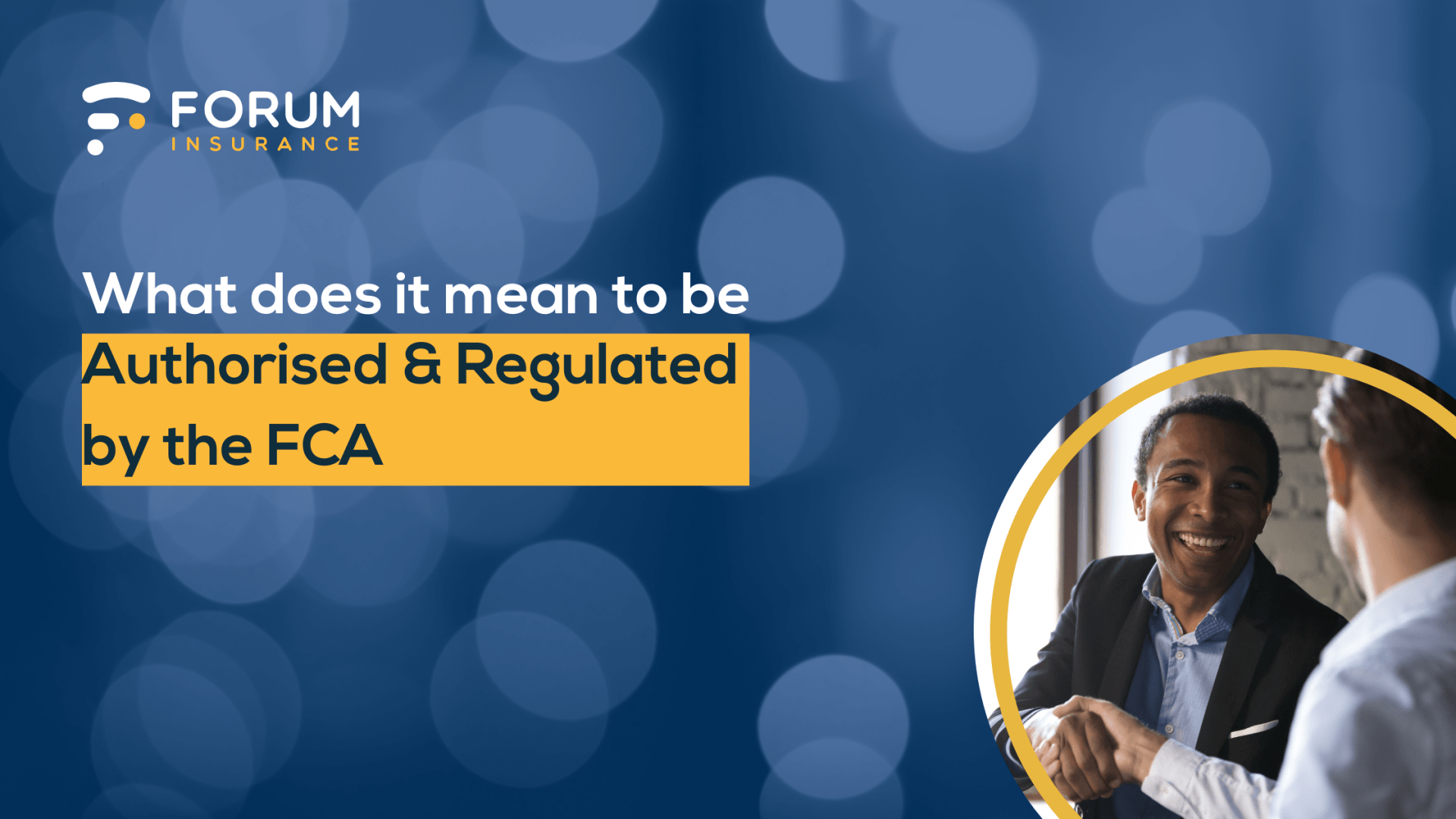
By Niraj Mamtora
•
13 Jan, 2021
What does FCA Regulated Mean? The body that is responsible for the regulation of all financial services in the United Kingdom is the Financial Conduct Authority (FCA). The main targets of FCA are to increase market integrity, promote healthy competition, and to protect customers. It achieves all of this by conducting three operational activities that include supervision, enforcement, and authorisation. As a result, all investment firms, consumer credit firms, and financial service providers need to be authorised. Moreover, the Bank of England's Prudential Regulation Authority (PRA) is responsible for the regulation of all insurance companies, banks, and credit unions. Operational activities of the FCA FCA has made it its main objective to make sure that all financial services prioritise customer protection against profit maximisation. Their regulation method I based on three major operational activities, which include: Authorisation: In order for a financial service provider to be regulated by the FCA, it needs to be registered or authorised by the FCA. The FCA then looks over the firm and the individuals involved to ensure that all required standards are met dutifully. For credit unions, insurance companies, and banks, the regulation process is undertaken by two bodies, including the FCA and the Prudential Regulation Authority (PRA). Supervision: Under this operational activity, the FCA supervises to ensure that all required standards are met by the individuals and firms. The element of risk is of primary importance that falls under the supervision. This operational activity is also based on a three-pillar approach with the three pillars being: Proactive supervision of the largest firms Reactive supervision as a response to the events that take place Thematic analysis which takes into account the risks impacting entire sectors or multiple firms Enforcement: This operational activity involves intervention by the FCA to charge penalties on the firms or individuals failing to meet the required standards. The FCA can impose penalties, including prosecution, compensation for the consumers, and orders to stop the trade. The whole regulation by FCA is performed in order to make sure that the consumers are protected. As a result, consumers can gain the confidence in the services provided to them by the firms or individuals. The regulation and consumer protection directly impact the economic stability of a country. This is because increased consumer trust tends to increase the growth and competition. Who does the FCA regulate? The main responsibility that FCA undertakes is the regulation of the conduct of financial markets and firms. The finance industry of the UK has defined financial services as the economic providers. Several types of businesses that have to manage money fall under this definition laid out by the finance industry. These include banks, insurance companies, credit card companies, stock brokerages, and credit unions. Apart from these businesses, the FCA also provides regulation services for listed corporates and their officers. However, the regulation undergoes in compliance with the listing and the disclosure obligations. The FCA can also bring enforcement proceedings against anyone for the civil and criminal offenses of manipulating the market and insider dealing. This a part of their role that is to maintain and restore market integrity. If any authorised firms or their officers breach the Money Laundering Regulations, the FCA holds the authority to prosecute them. The funding to the FCA comes directly from the firms that it is responsible for regulating. These firms pay the FCA as part of the fee it charges for services. The FCA won't provide any regulation activities to the financial services providers as long as they are not registered or authorised by the FCA. If an applicant wants to get themselves authorised, they have to submit their qualification and experience, business plans, and qualification and experience. The FCA then thoroughly analyses these details before making a final decision. Once a positive decision has been made, all authorised firms are required to comply with the principles and rules and meet all minimum standards. There are a total of 59,000 firms being currently supervised by the FCA. Most of these firms are serving wholesale and retail consumers as well as users of many of the world's most significant and largest global markets. The complexity and size of all these firms vary greatly. Moreover, FCA provides a level of regulation based on the level of risks of harm the firm poses to market integrity and consumers. Why is it important to be FCA regulated? Investing money is a risky business. As a result, consumers take extra caution while investing their money as everyone wants to avoid working with a firm that is unreliable and untrustworthy. FCA regulation or authorisation means that a consumer can trust the firm. It ensures that the firm treats all consumers in compliance with the strict criteria laid out by the FCA. As a result, consumers do not have to do extra research on the firm in making their final call. This is because FCA regulation ensures that all firms that fall under their supervision are complying with all the requirements of the Financial Services and Markets Act 2000 (FSMA). Another major importance of FCA regulation is the impact it has on the economic stability of the country. This is because consumer trust in financial services is directly linked with the stimulation of growth and competition. Conforming to the FCA's is also beneficial for the businesses. This is because new businesses are won by financial service providers who always put their consumers first. History has shown that these businesses are won by the financial firms based on the quality, service, and price they have to offer. FCA has done wonders for the financial industry ever since it came into existence. The importance of this can be understood by the fact that before the FCA regulation of the financial industry, there were billions of pounds of fines being paid for financial crimes. These were in the form of compensations, penalties, and fines. The FCA has made it its utmost priority to monitor the sales-driven culture. Based on this, it implements suitable enforcement and control measures to make sure that the consumers are protected and the economy stays stable. How do financial services providers become authorised and registered by the FCA? In order to get registered or authorised by the FCA, an application has to be submitted. Once the application form is sent to the FCA, it will appoint a case officer for the firm. The responsibility of the case officer is to work with the firm to understand its procedures and processes. This evaluation is followed by an assessment by the officer to ensure that all the standard requirements in the FCA Handbook are being met by the business. Moreover, the FCA also checks against all key position holders in the business, including the directors and other such as compliance officers. They then approve whether these individuals should continue to hold their respective positions. Once this whole process has been carried out, the FCA writes to the applicant to tell them whether they have been authorised or not. If the applicant is not authorised, the FCA provides them with a fair explanation for the rejection. There is also an application fee to be paid by the applicant. If authorisation is confirmed, the applicant then has to pay an annual fee to the FCA for its regulation services. Moreover, they also have to effectively stay in communication with the FCA and submit any important reports on a regular basis.
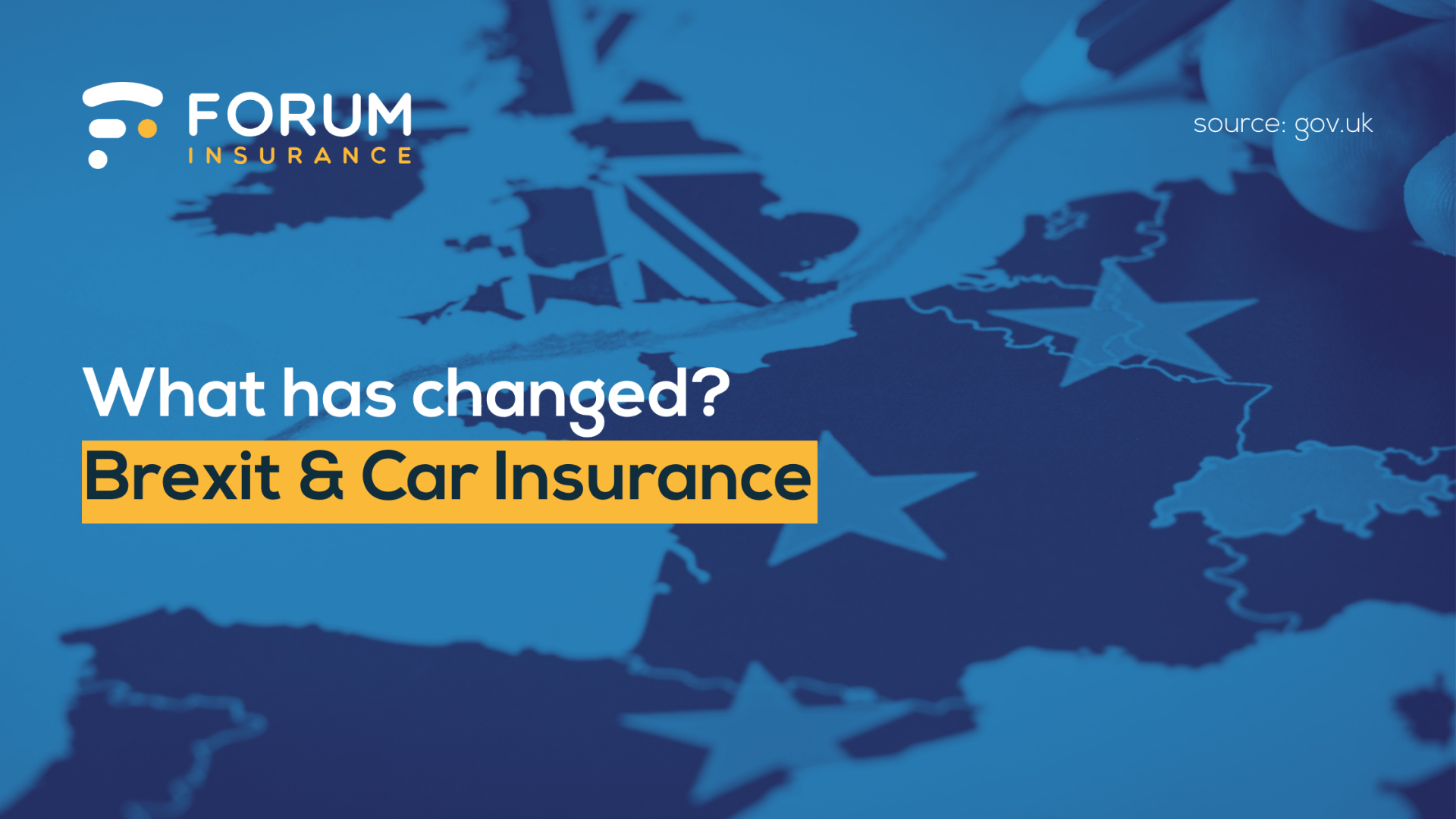
By Niraj Mamtora
•
06 Jan, 2021
Brexit has affected a lot of policies. It is only natural that one may worry about what their travel insurance policy is going to be like as a result of this. Being a client of Forum Insurance, you will still get cover in all the countries enlisted in the Insurance guide. The duration of the cover is 90 days which can be further extended for an additional 12 weeks (maximum) based on our prior agreement.

By Anton Hilton
•
07 Dec, 2020
Owning a property means there are tons of things that you need to take care of at all times. After all, it is a long term investment, and you need to safeguard it in any way possible. Among all of that, one of the most important things is getting insurance for your property in case the worst happens. So, what do you do to protect your property? You get insurance for it. Now, we will explain to you how and where you can find the best cover for your home, so when things go south, your house is fully protected, and you are not left with thousands of pounds in expenses.

By Anton Hilton
•
24 Nov, 2020
The Chartered Institute of Internal Auditors (Chartered IIA) has seen cybersecurity rank as its top risk for the third year straight. But their survey has also brought new dangers to light with the recent surge of COVID-19 seeing disasters and crisis preparedness ranking as a new top five risk. The results came about after a comprehensive survey of over 570 Chief Audit Executives. Of these, 79% labelled cybersecurity as one of the greatest corporate risks that they had to deal with, whereas 27% labelled it as the single greatest risk. This growing fear of having inadequate cybersecurity has seen a surge with the advent of remote working as individuals and companies are now all the more reliant on technology, making them that much more susceptible to viruses, phishing activities, and malware practices.

By Anton Hilton
•
23 Nov, 2020
Hackney Borough Council is scrambling to support its IT systems and operations after being at the receiving end of an unfortunate cybercrime. Located in North London, the Council is carrying out procedures in collaboration with the National Cyber Security Centre in a bid to estimate the gravity of the situation. Being absolutely devastated by this breach, Hackney Council has also reached out to the Ministry of Housing, Communities and Local Government as well as professionals of the cyber security world with requests of assistance.
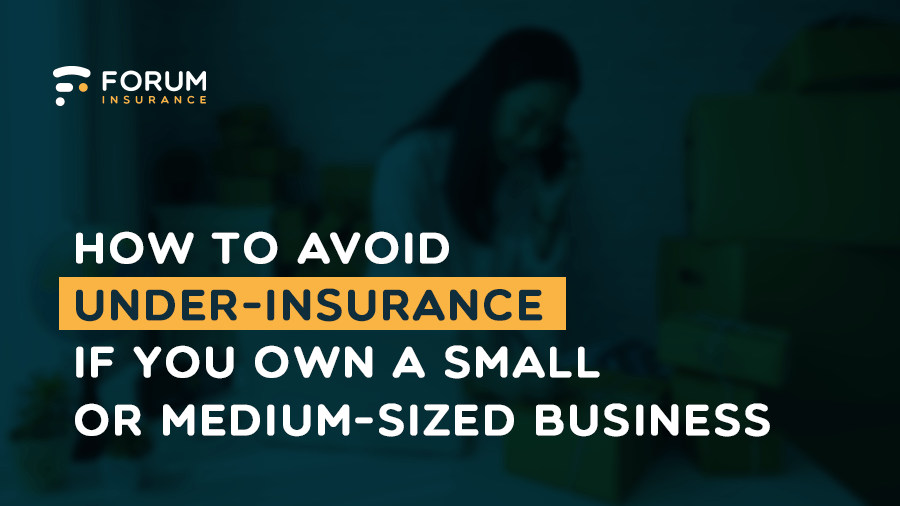
By Anton Hilton
•
20 Nov, 2020
Underinsurance is a common issue that leaves the policyholder with many financial difficulties. In layman terms, underinsurance means that the policyholder is left with insufficient insurance coverage, which makes them responsible for paying a higher percentage of the total loss suffered. For instance, if a homeowner is underinsured and some sort of significant damage occurs, the payout might not be adequate to repair things. Similarly, if the policyholder has insufficient health insurance, they can go into medical debt or even bankruptcy in case of a severe illness or an accident. So, what do you need to do to avoid underinsurance? Well, here are some useful tips to save yourself the trouble of being underinsured!
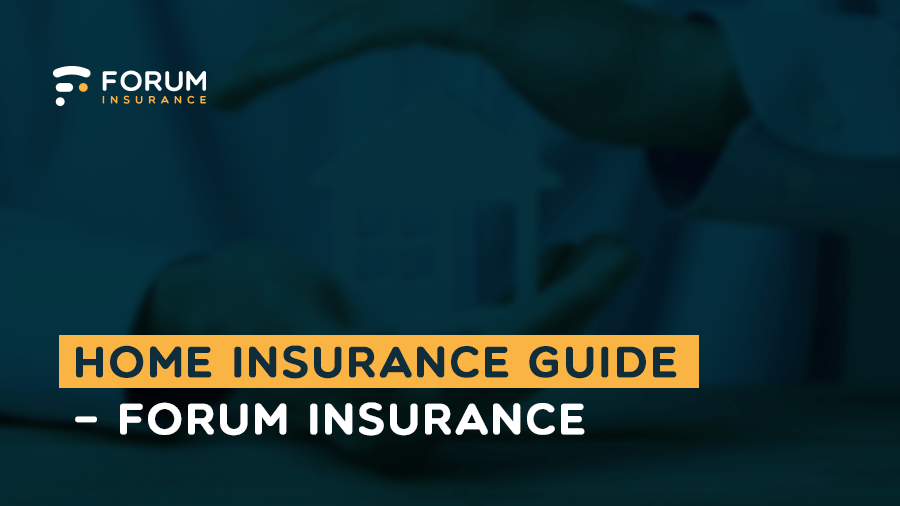
By Anton Hilton
•
18 Nov, 2020
If the year 2020 has taught us one thing, it is that no safekeeping measure is too extreme. From a global pandemic to flooding to wildfires, we’ve experienced it all over the past couple of months. Despite everything, our homes continue to act as a safe haven for us, protecting our loved ones and us from the outside world. It is a good idea, then, to take measures to protect our home itself. And what better way to do so than to take out a home insurance policy? None, of course! So, before you look any further, our home insurance guide has got all you need to know before taking out a policy. We promise the read will be well worth it!
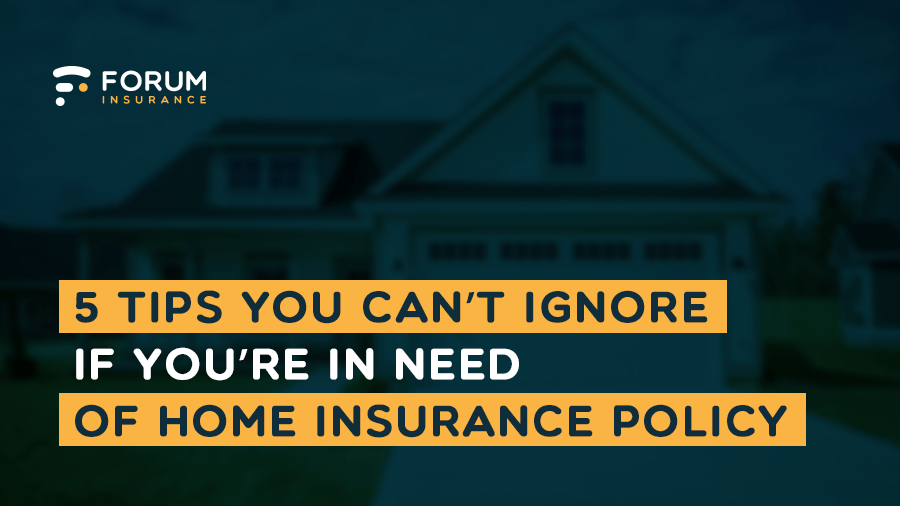
By Anton Hilton
•
16 Nov, 2020
Buying a house is considered a great achievement and is one of the happiest and most exciting times of your life. However, all this excitement and happiness can go away in just a brink of a moment. A natural disaster, theft, accident, emergency home repairs, or any other unfortunate event can consume all your savings and ruin your financial stability. So, it is vital that you protect yourself from the worst surprises life might throw at you. What is the best possible way to safeguard yourself, you ask? Well, get yourself home insurance and bring the peace of mind you deserve. Getting the ideal life insurance policy can be challenging. However, hiring an expert insurance brokerage such as Forum Insurance can make the task much more manageable. They will do all the hard work for you and tailor the perfect insurance policy! Despite getting an insurance broker to help you out, there are still some tips that you must keep in mind when you are looking for a home insurance policy. To help you out, here are the five essential tips to remember!
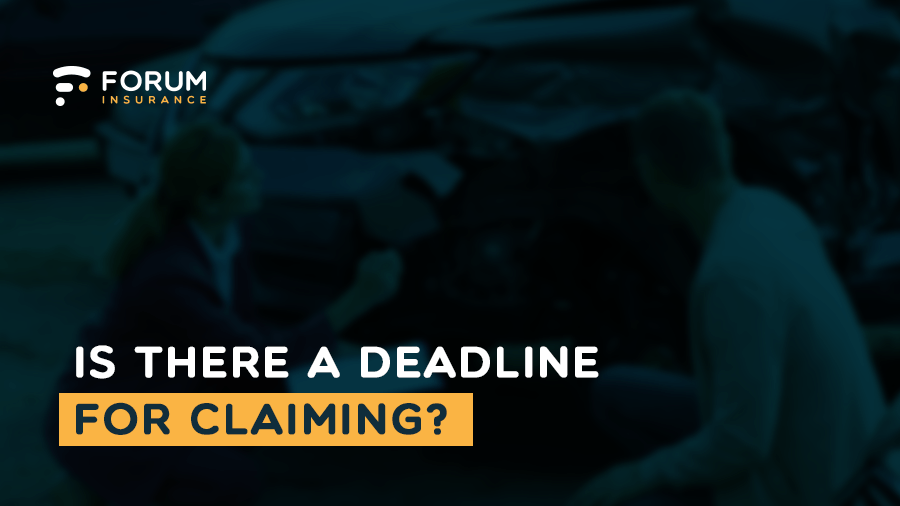
By Anton Hilton
•
12 Nov, 2020
Insurance is becoming an increasing commonality in today’s world, and for good measure! More and more people are finally opening up to the many benefits it offers and jumping on the insurance bandwagon. But this sudden surge often means that decisions are uninformed, which is why we at Forum Insurance are here to guide you every step of the way – including claims. Making a claim is the equivalent of crunch time when it comes to insurance policies, and it is necessary for individuals to stick to proper timelines and procedures to maximise their benefit. Here’s all that you need to know when making a claim.

By Anton Hilton
•
11 Nov, 2020
Every business owner knows and acknowledges the risk involved in running a business. One year, you might be at an all-time low, and the next, you might be at your highest. However, managing and running the business must be your only concern. You should not have to bear the losses suffered due to external problems such as a fire or a natural disaster. Hence, the business interruption insurance exists to protect you in exactly such unforeseen circumstances.

By Anton Hilton
•
10 Nov, 2020
The number might be surprising for you, but there are around 216,000 homes that are unoccupied in the United Kingdom as of 2019 . The numbers might even be higher now, considering the statistical increase throughout the years. Apart from these unoccupied houses, there are around 340,000 homes in the UK that are rarely occupied. Considering these statistics, it is highly probable that you, or someone you know, might have an unoccupied property. It might come to you as a shock, but most insurance companies do not offer coverage to homes with standard home insurance that are unoccupied for over a month. So, how many of these are adequately insured? Let's answer all your questions about unoccupied properties, especially during the pandemic, where there are constant lockdowns for prolonged periods.

By Anton Hilton
•
30 Oct, 2020
At Forum Insurance, we’ve worked hard to establish ourselves as the best of the best in the industry. While it hasn’t been an easy ride, our dedication and commitment to serving our customers have truly paid off. Today, as we celebrate our 30 year anniversary, it is time to take a look at all that we have to offer, and why Forum Insurance is the answer to all your coverage needs.
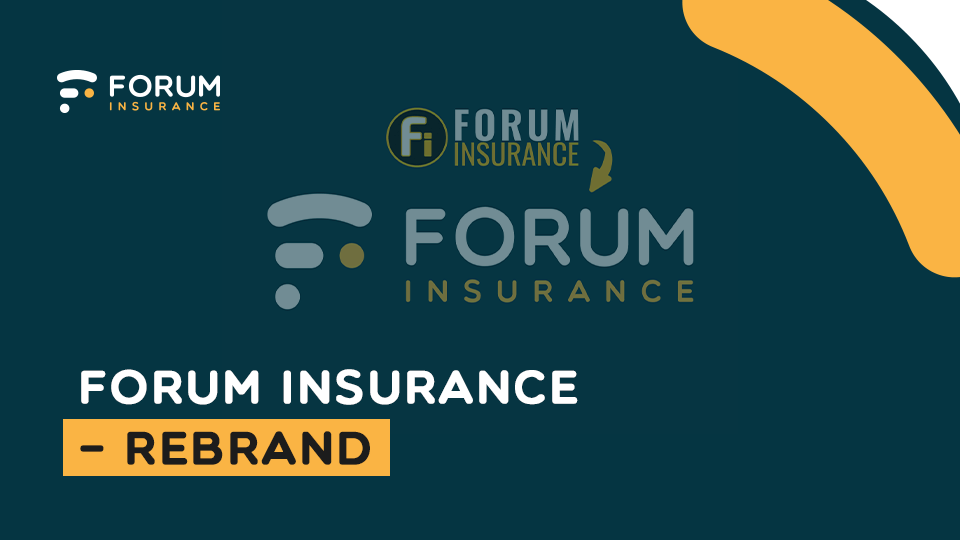
By Anton Hilton
•
26 Oct, 2020
At Forum Insurance , we love celebrations! And what better occasion to rejoice than our anniversary of being up and running in the market for a whole thirty years. While we’re going to continue providing the same exemplary services, we’re going to do all that with a new look. After all, self-presents are the best, and we decided to rebrand ourselves as a treat to our customers and ourselves!

By Niraj Mamtora
•
15 Oct, 2020
If you're lucky enough to be going off to university with a shiny new laptop or tablet to get down to some hardcore studying, you need to make sure you've got your equipment insured for worst-case scenarios. Before you fork out on insurance cover, you could check your parents' home insurance policy, as your possessions may automatically be covered against theft or loss under its 'temporarily removed from the home' section while you're a student. The cover usually only applies while your contents are in your accommodation, and as long as your parents' home is your main permanent address. Check the policy wording for any exclusions and check with your parents they don’t mind you using their policy. If you need to cover any devices such as laptops, mobile phones, or equipment for your studies you can ask your parents to get an ‘add on’ to their existing home contents policy. This would cover your personal belongings while away from home. It is worth noting that some halls of residence include a contents insurance policy when you pay rent. They’re usually not the strongest of policies but it’s worth checking if it’s included in your rent and reading the documents to see how you're protected. If you can’t use your parents' insurance or you don’t have it included in your rent, your next option would be to take out gadget insurance or specialist equipment cover depending on what you need to be covered. We simplify gadget insurance with fixed premiums and fixed cover. Get in touch with us to find out how quick and easy it is. If you require insurance for specialist equipment insurance the best option is to call us directly! We can provide advice on covering nearly anything and the best option to keep you and your equipment protected! Drop us an email at info@foruminsurance.com or press the green telephone phone icon on the right and we'll call you back!
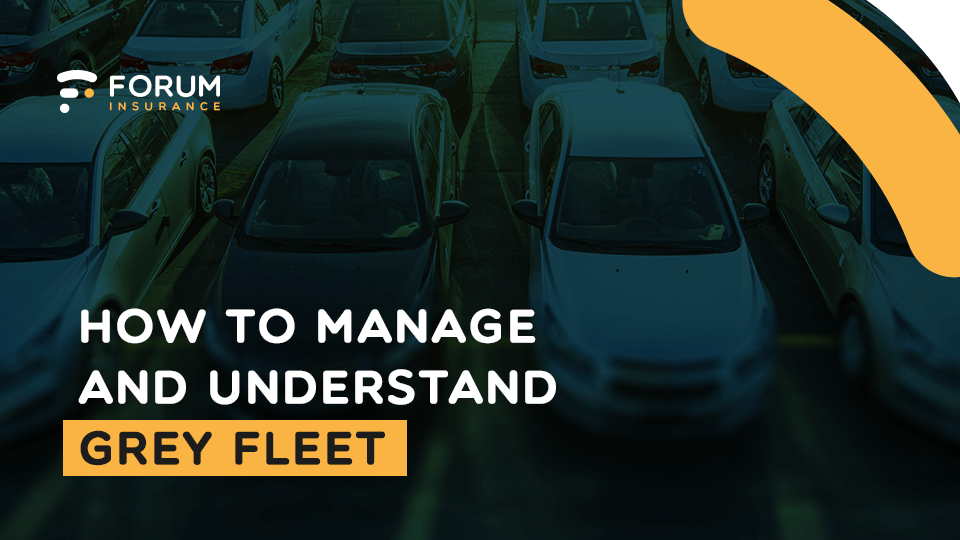
By Anton Hilton
•
13 Sep, 2020
Grey Fleet plays an essential role in businesses but is often neglected and not given the importance it deserves. According to statistics, there are about three times more grey fleet vehicles as compared to business-owned automobiles in the UK. So, it is vital that you have a reasonable understanding of how to manage your grey fleet and driver safety as well. Now, without any further ado, let us get into all the necessary information that you need to know regarding the Grey Fleet.
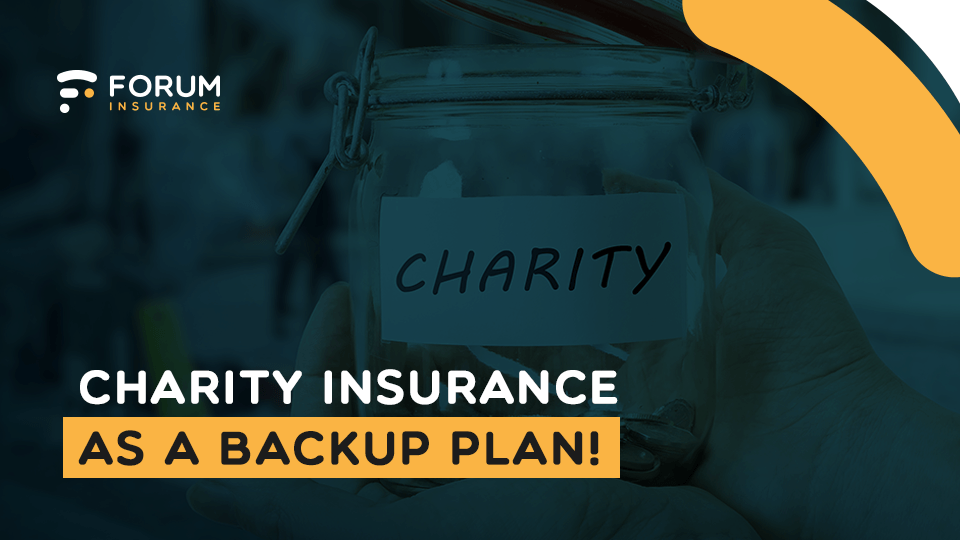
By Anton Hilton
•
12 Sep, 2020
When you run a charity, there are tons of things that can go wrong. Running a charity itself is one of the most selfless things you can do for humanity; however, that does not mean it is as easy as it is beneficial. There can be tons of ups and downs, accidents, mishaps, issues, and legal difficulties when you run a non-profit organisation. In such a scenario, you must always have a backup plan in case things go south. So, if you run a charity, make sure you get insurance for it too!

By Anton Hilton
•
10 Sep, 2020
It’s a common norm for us to insure the homes we live in, our businesses, and even our vehicles. But what about coverage for unoccupied houses? Is insurance necessary even when there’s no one inhabiting a house? Well, of course it is! After all, just because your house is empty, that doesn’t mean its financial value has decreased, or that it’s less susceptible to any kinds of damages. So, whether you’re on an extended holiday or planning to sell, here’s a quick guide on how to cover your home when it’s unoccupied.
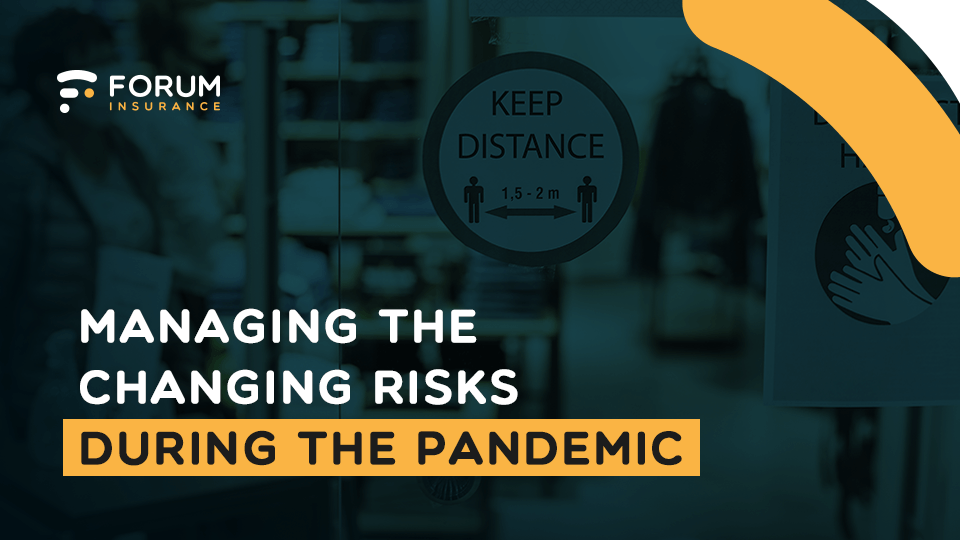
By Anton Hilton
•
09 Sep, 2020
Over the past several months, there have been some pretty drastic changes all around the world, thanks to the global pandemic, COVID-19. People are still confined in their homes in many parts of the world, and there are active quarantines to minimise the spread of the contagious disease. This pandemic has changed a lot of things, and have prepared people for the worst. Among other things, people have now started to realise the importance of insurance. There have been thousands of deaths all around the world just because they were unable to afford the medical fees. Other than this, there have been losses suffered as tourists had no insurance and were affected by many issues in foreign countries. So, in order to prepare yourself better for the unexpected, like this pandemic, here is what you can do to manage the risks!

By Anton Hilton
•
08 Sep, 2020
Non-profit organisations and charities are known to play vital roles in helping and making lives better for many people. This not only includes the people they support but also the fundraisers, employees and volunteers they work with. All are brought together under a charity in the name of a good cause to help others. But things can go wrong even for organisations that help others. Therefore, charities must also insure against the unexpected, just like businesses do. You need to have a combination of employers' liability, public liability and trustee liability in order to protect yourself from any claims made by donors, workers, volunteers and the public. The laws governing the sector for charities and non-profit organisations in the UK vary depending on where you reside in the country. As a result, many people struggle with differentiating between a charity and a non-profit organisation. Let's have a quick look at the major differences between the two before we move further.
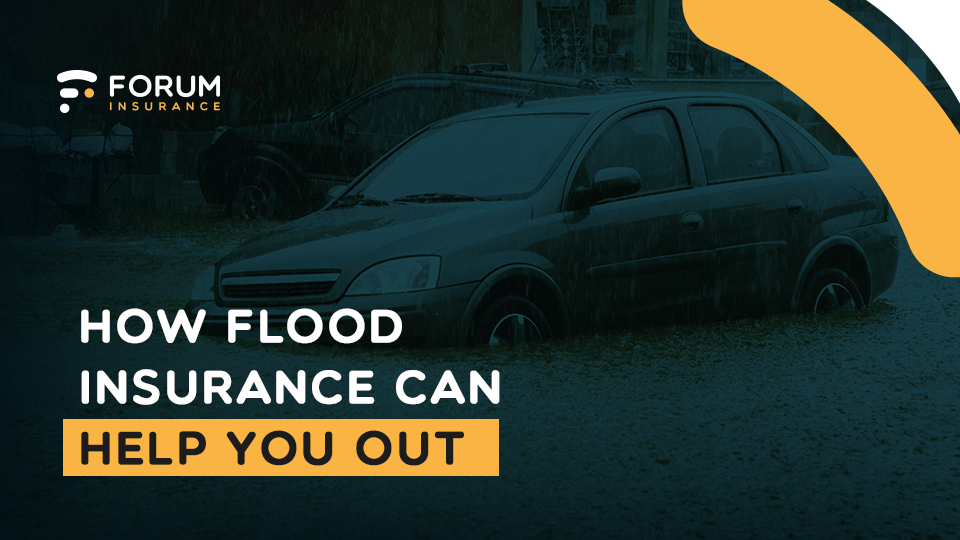
By Anton Hilton
•
07 Sep, 2020
Once again, heavy bouts of flash flooding have hit London, among other parts of the UK. With much of Southeast England drenched in up to six inches of rain, the aftereffects of this flooding have been anything but subtle. Buildings have been left damaged, highways have had to be closed, and hundreds of people are facing losses in both business and their homes. In times like these it is those with insurance that fare better. Not only does their insurance package cover the incurred losses, but they are also able to resume from a better standpoint. Knowing what insurance policy to take out, however, and the full extent of its claims is tricky business. There is a lot of thought that goes into the process, which is why we at Forum Insurance aim to help our valued customers.
